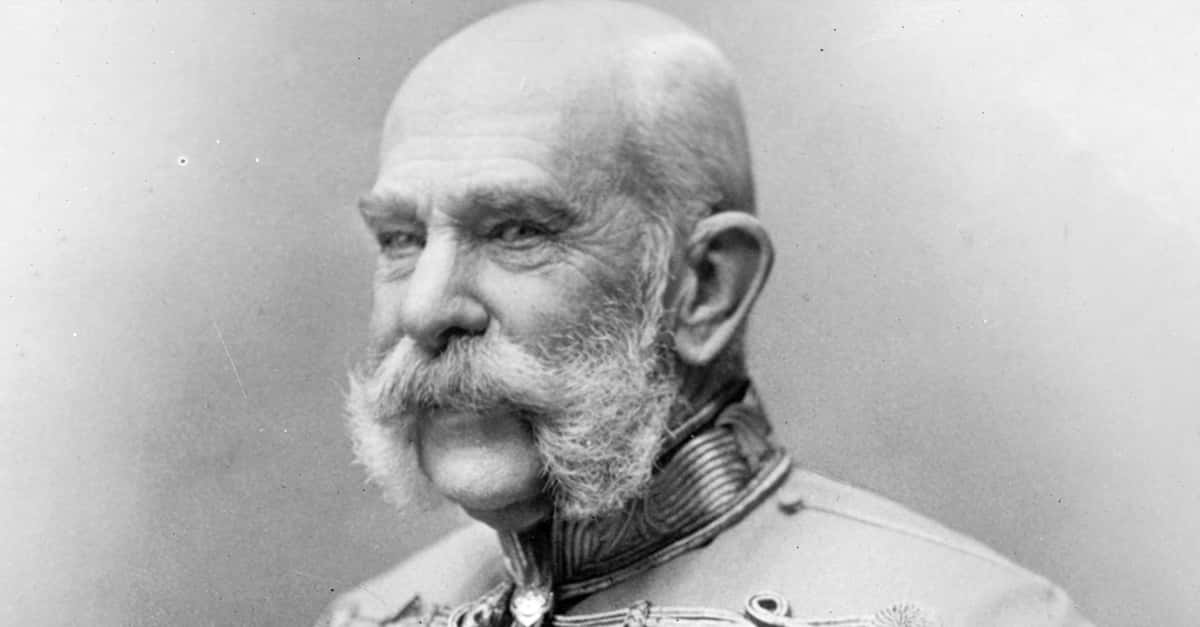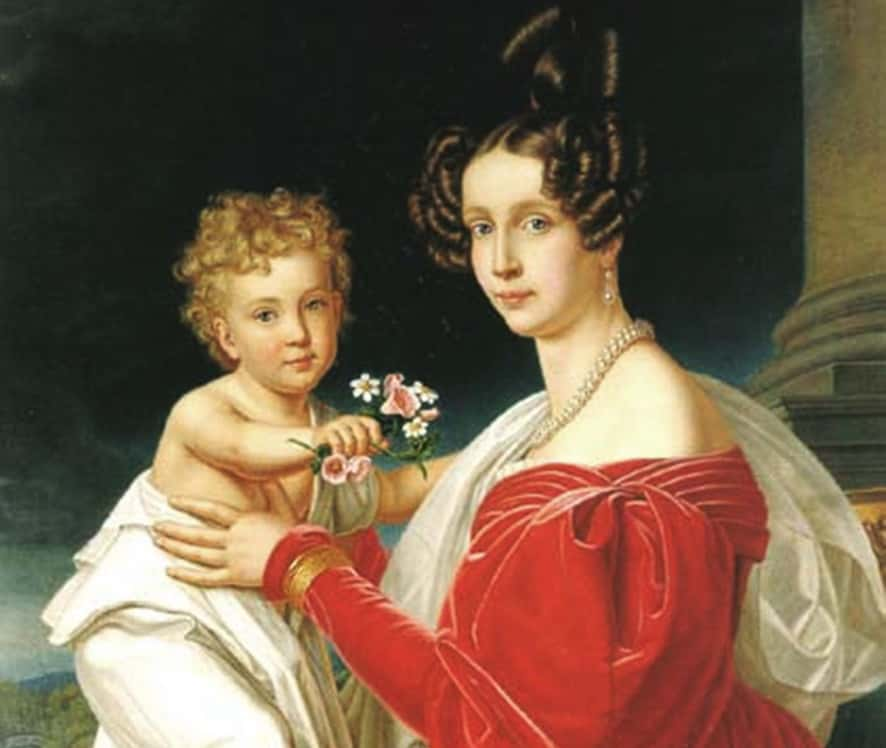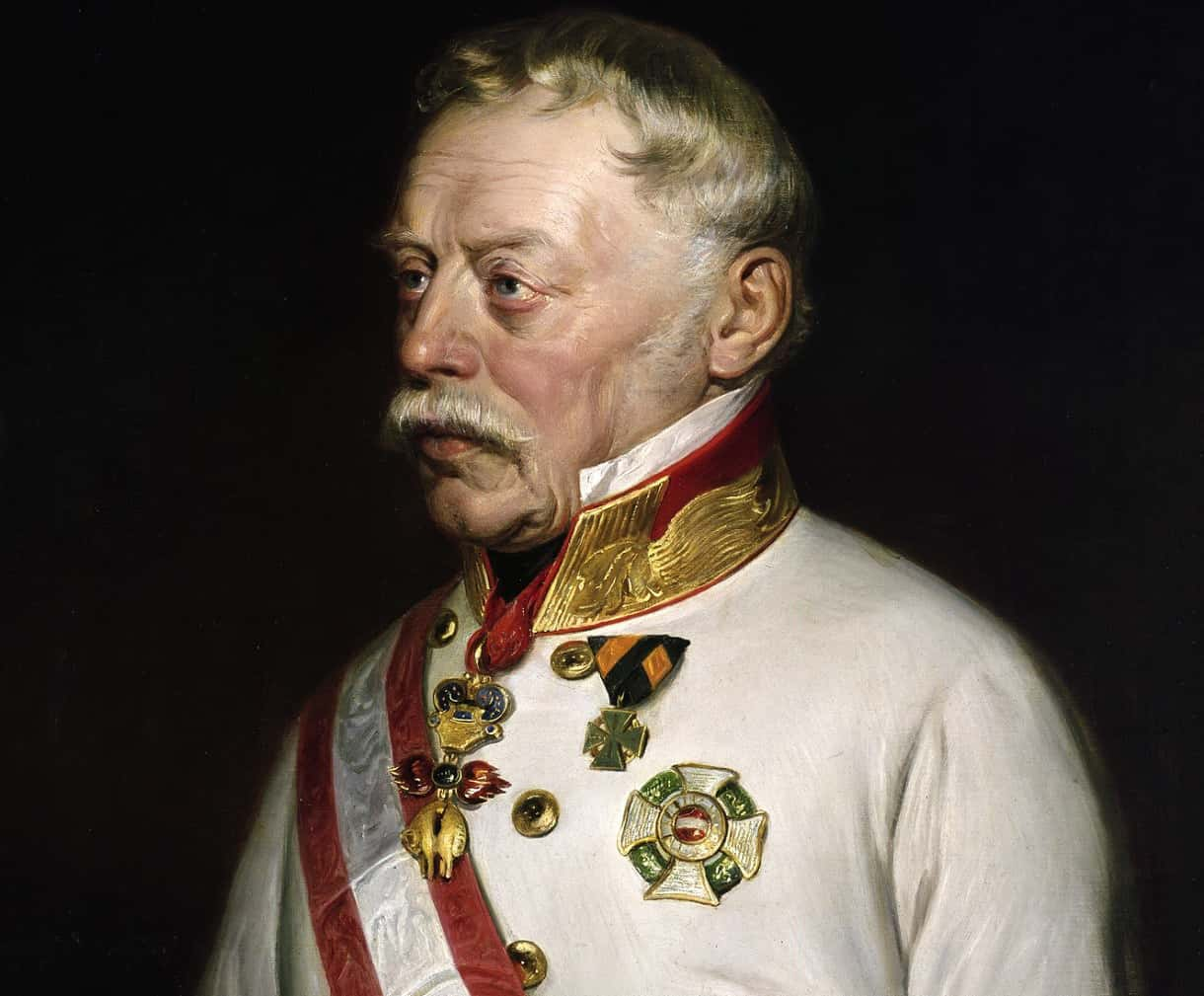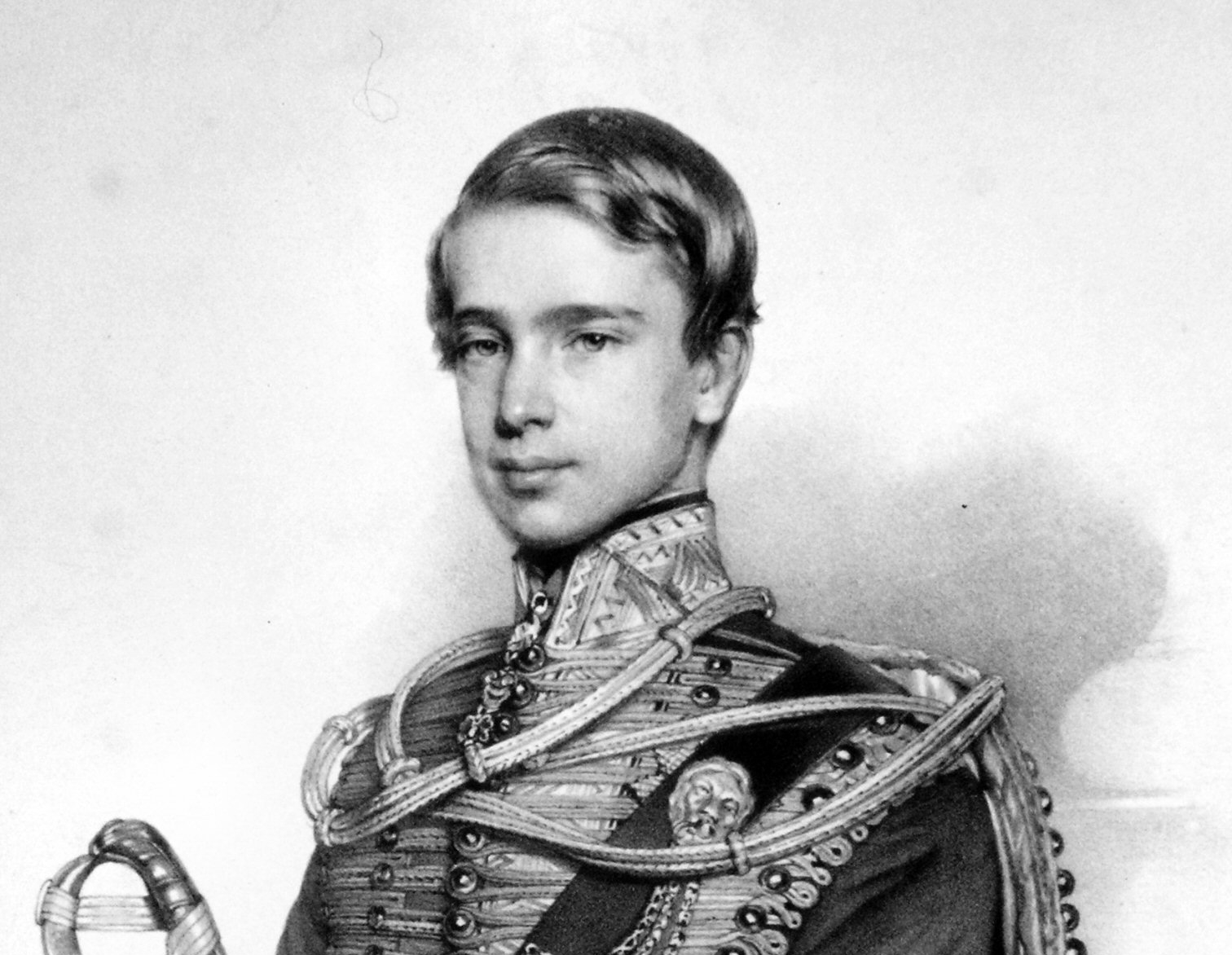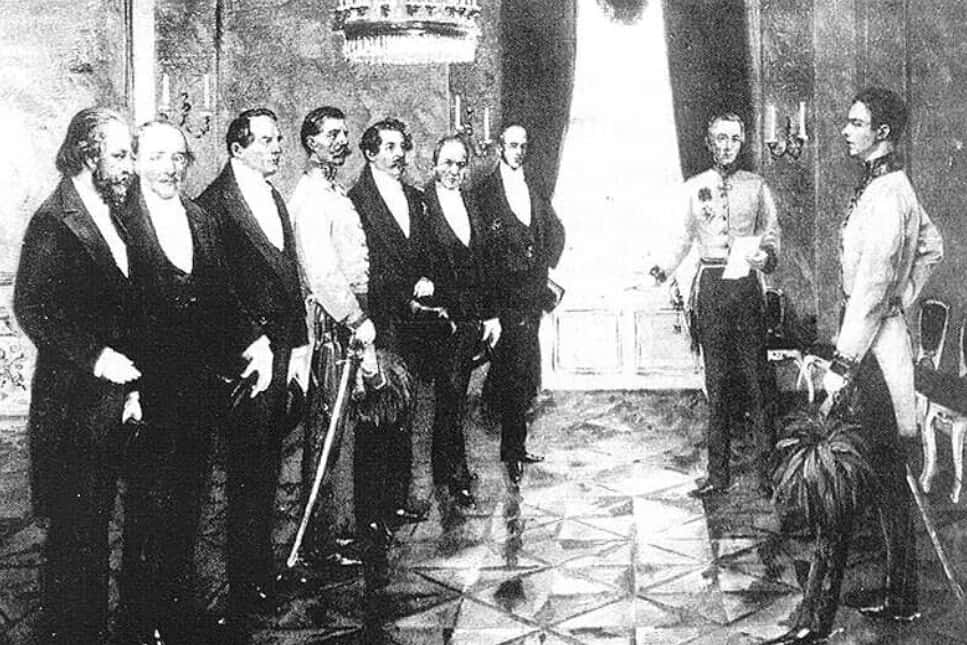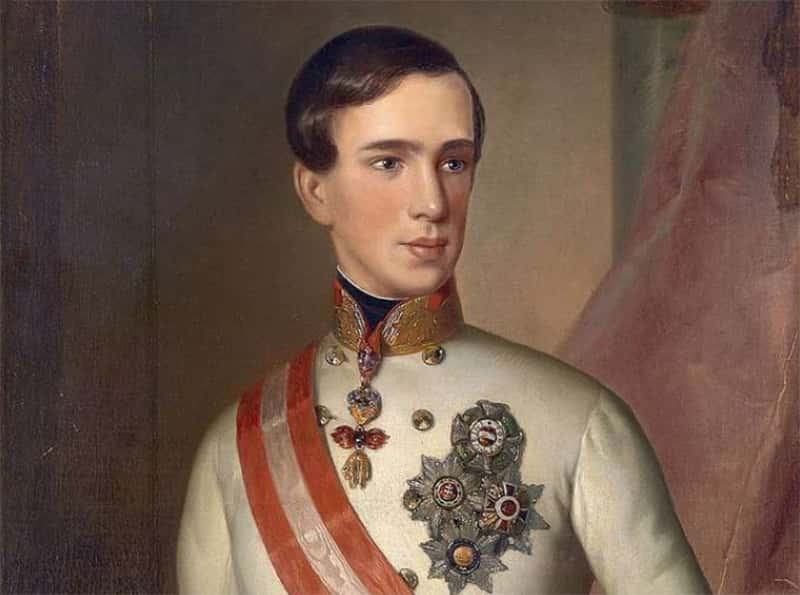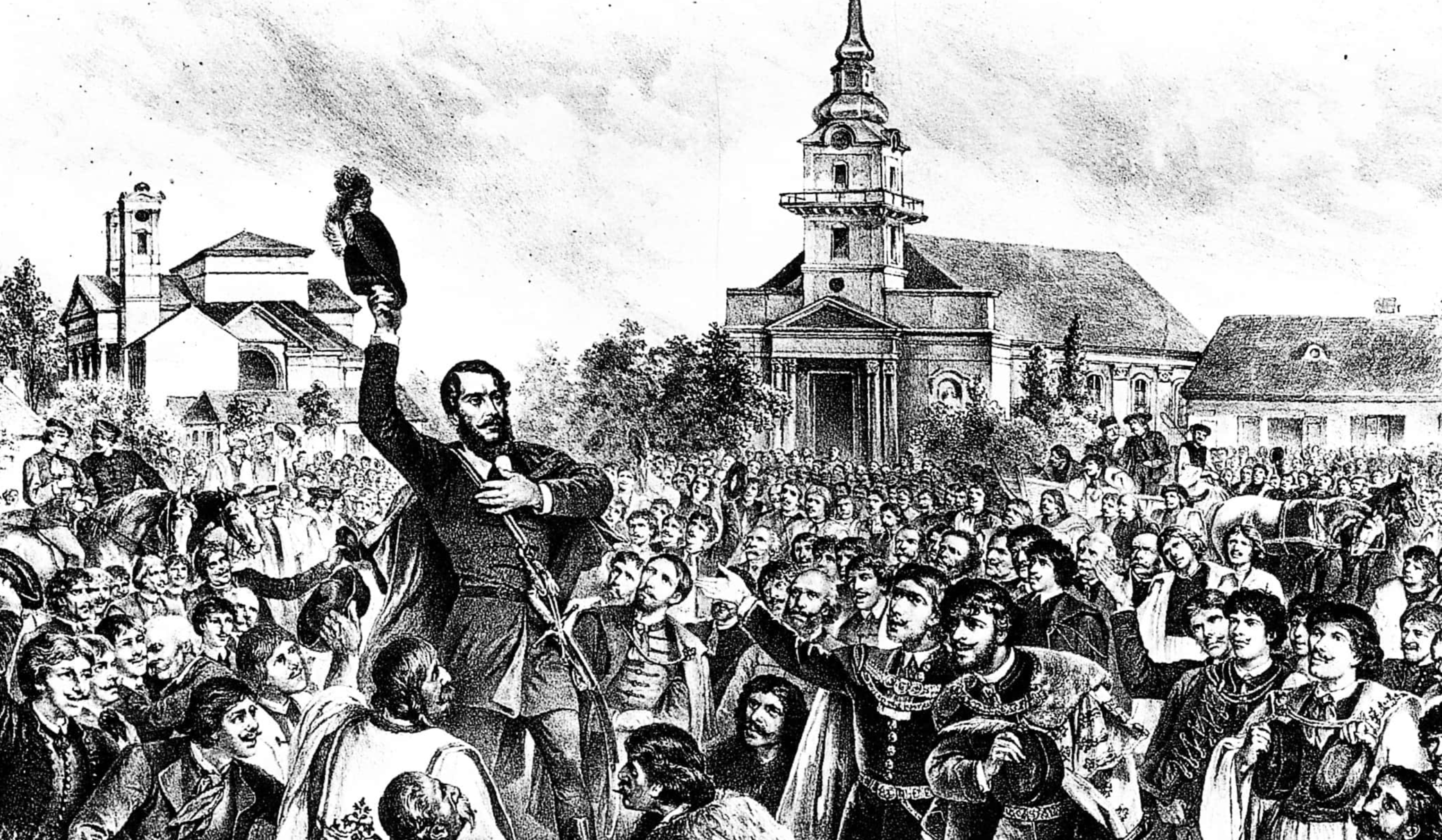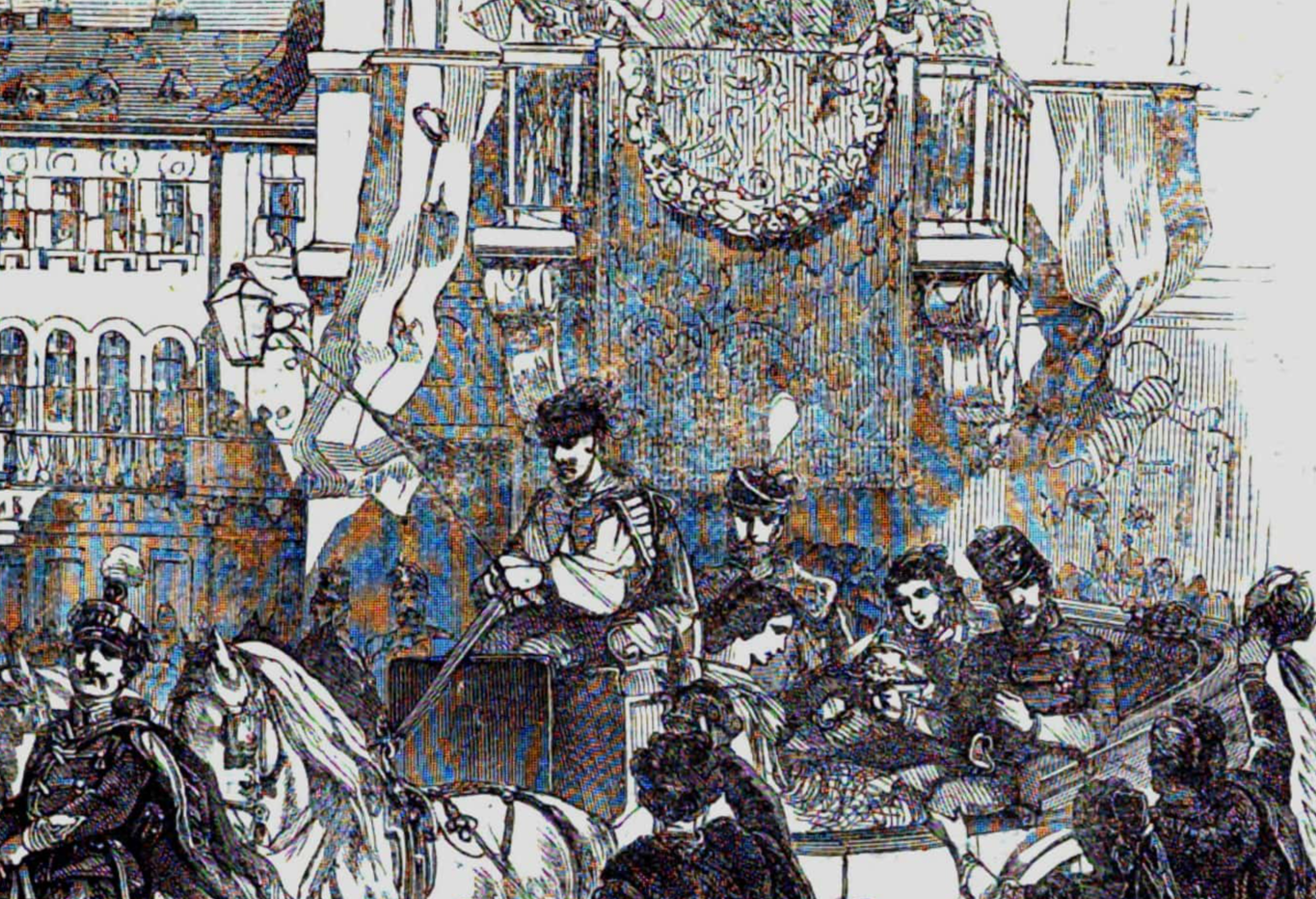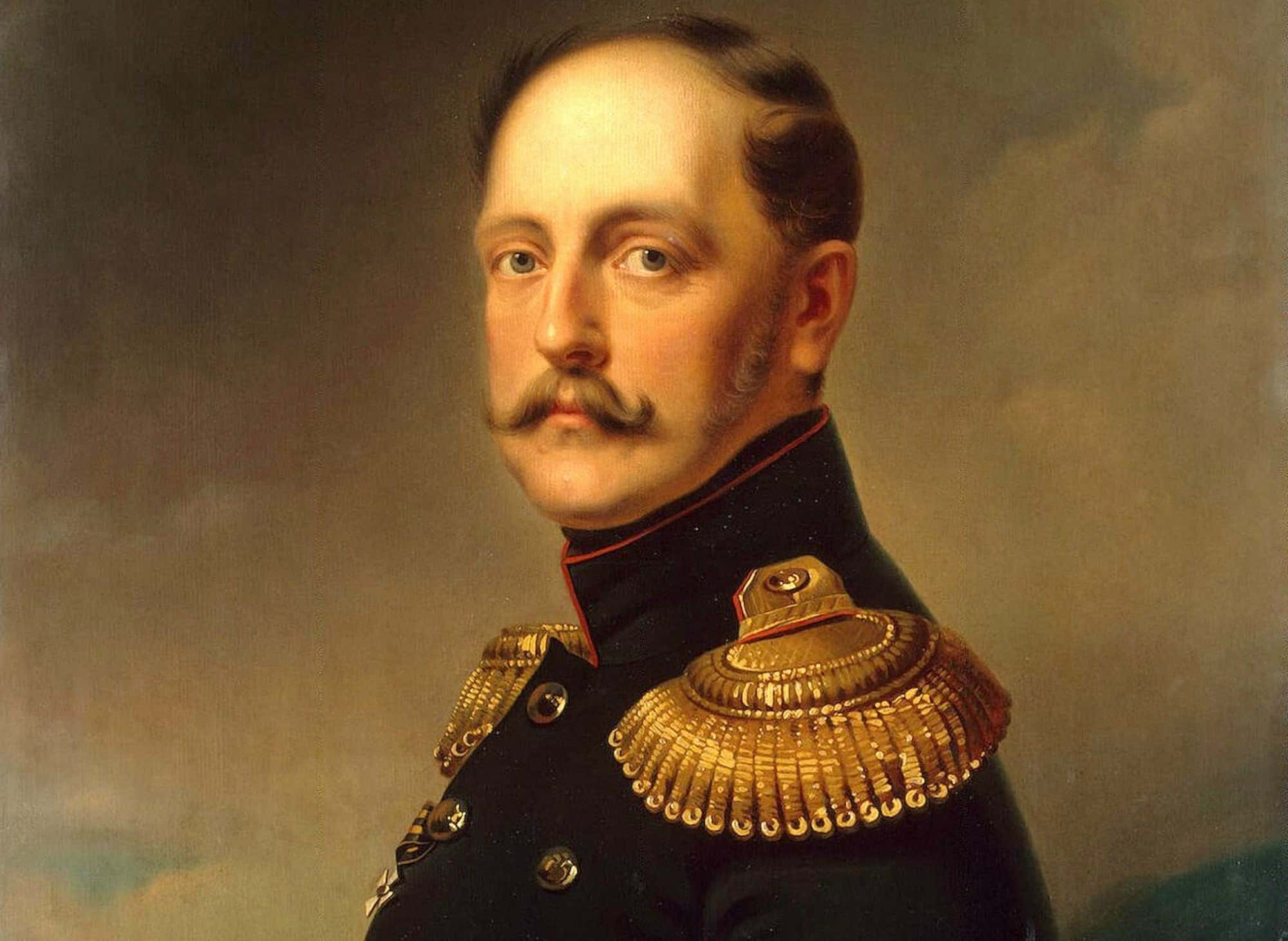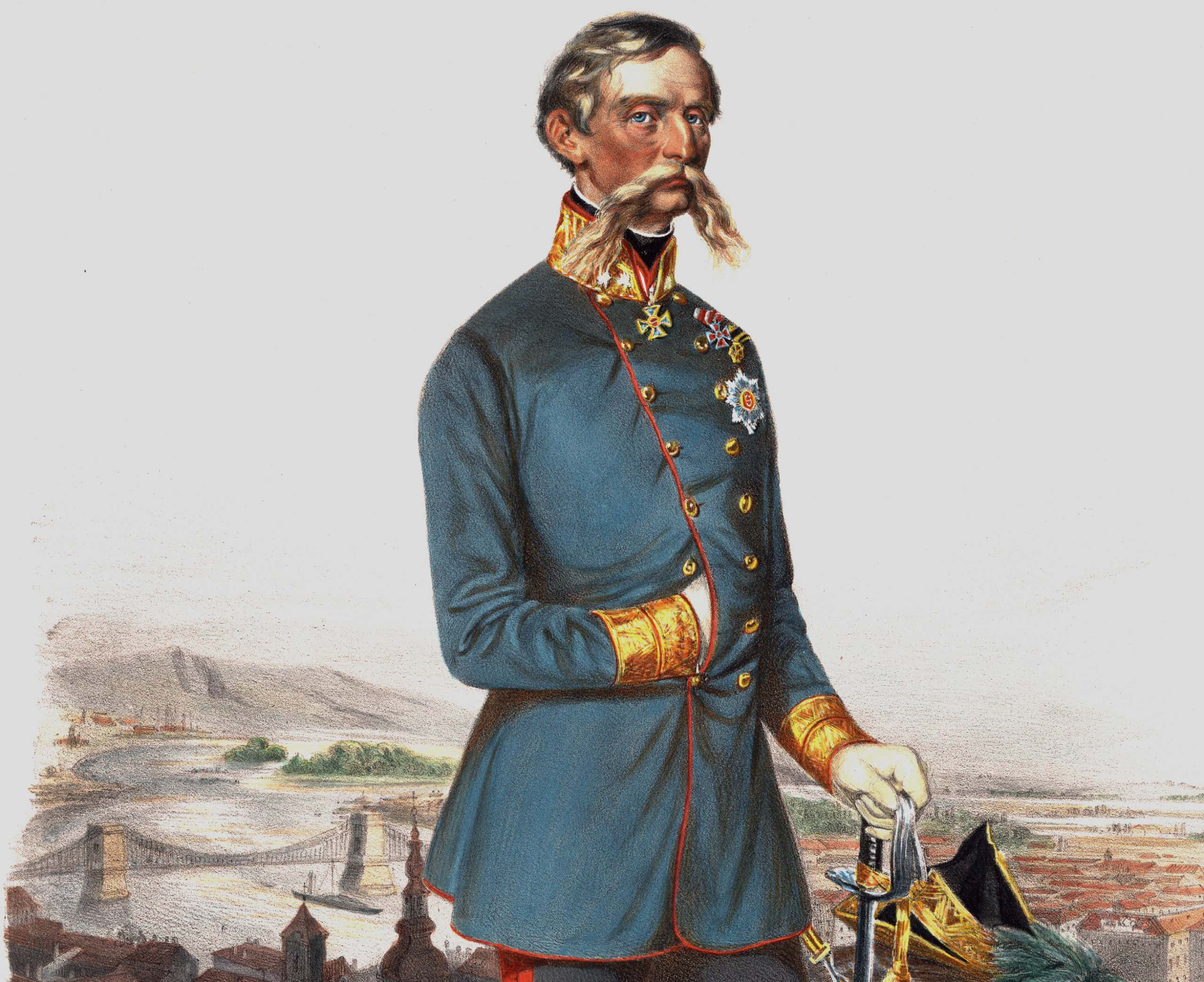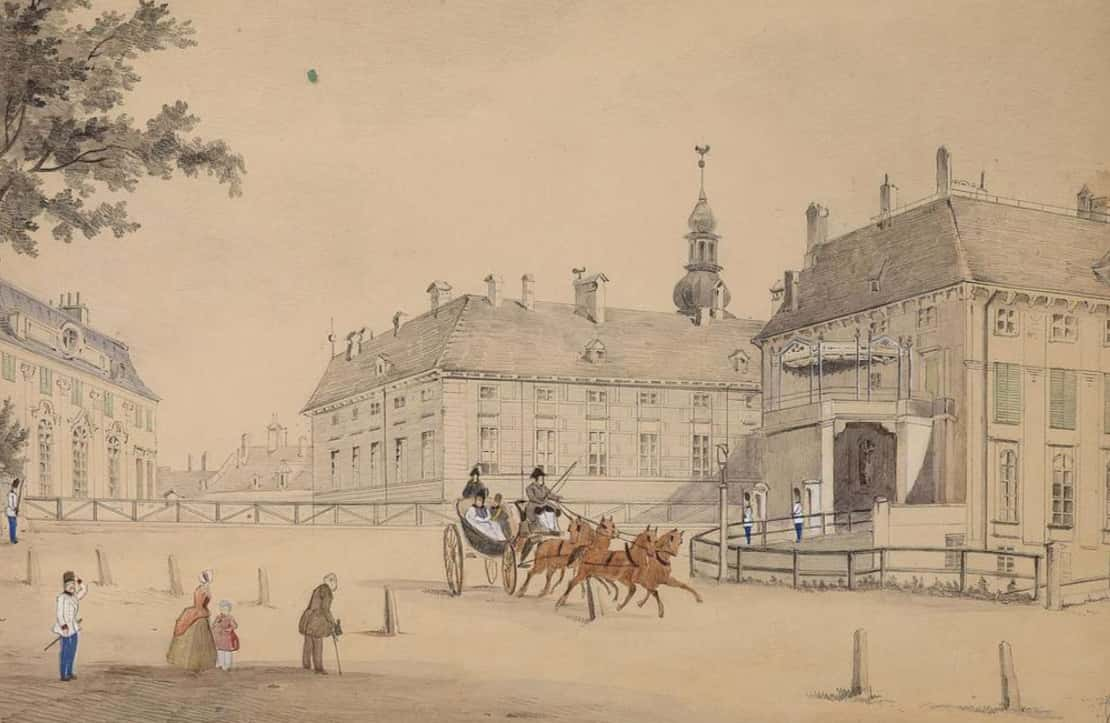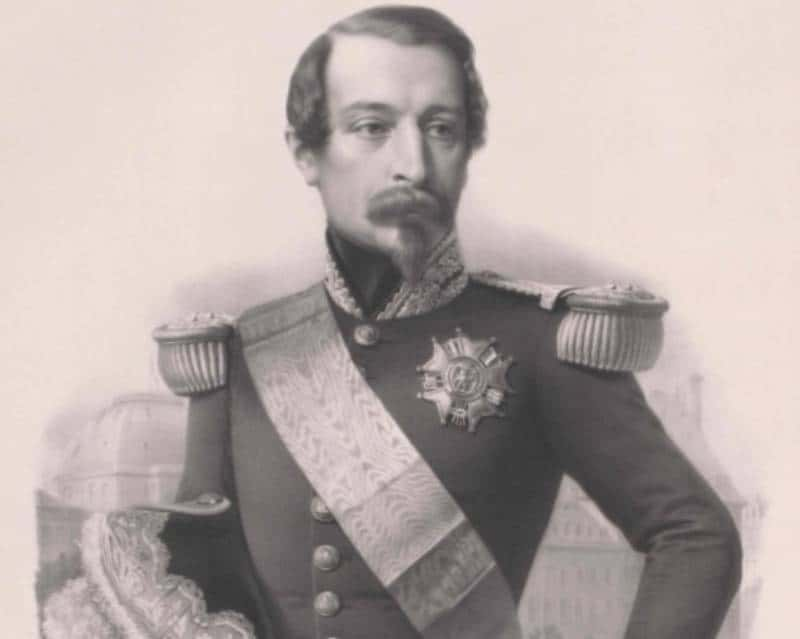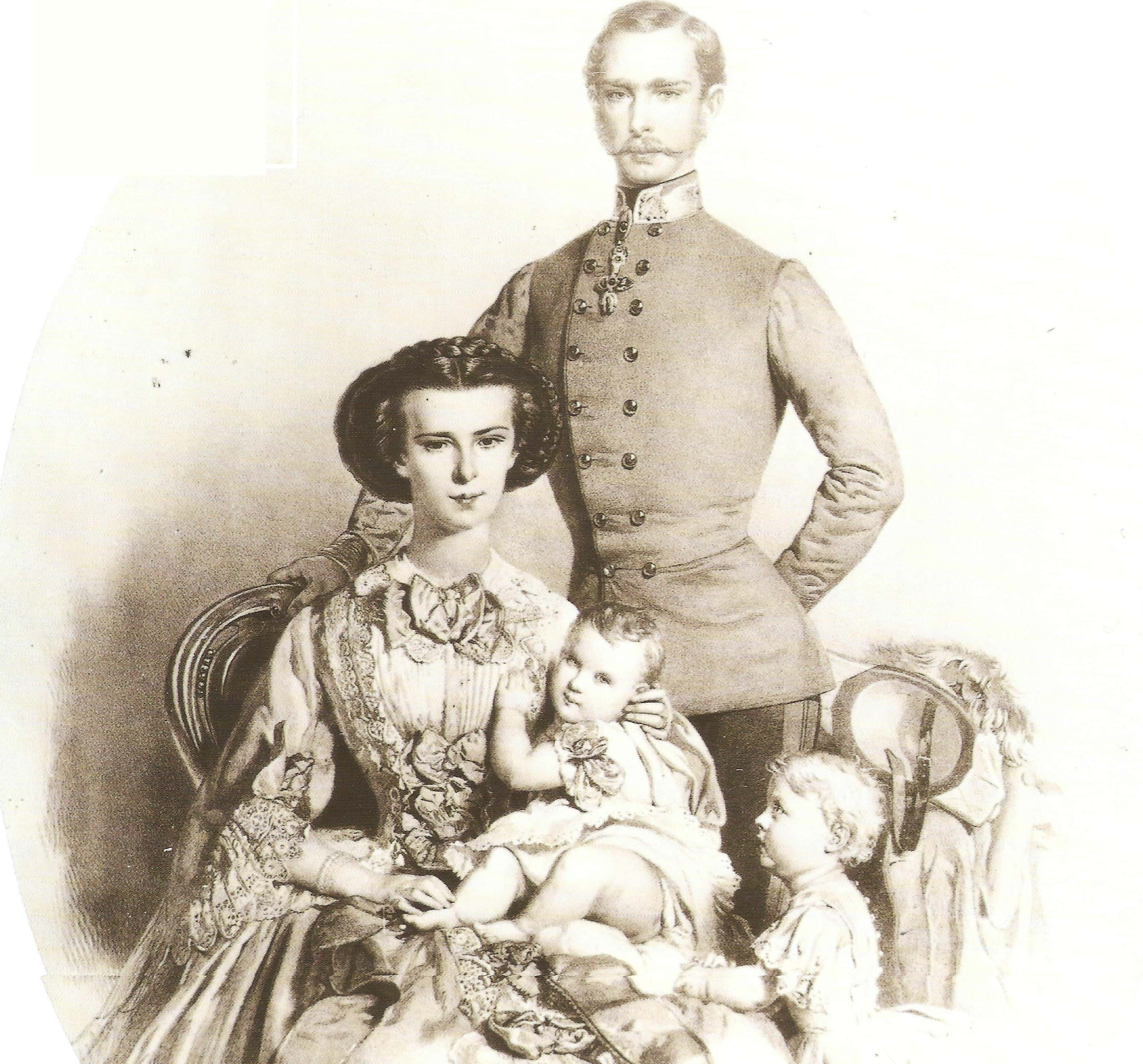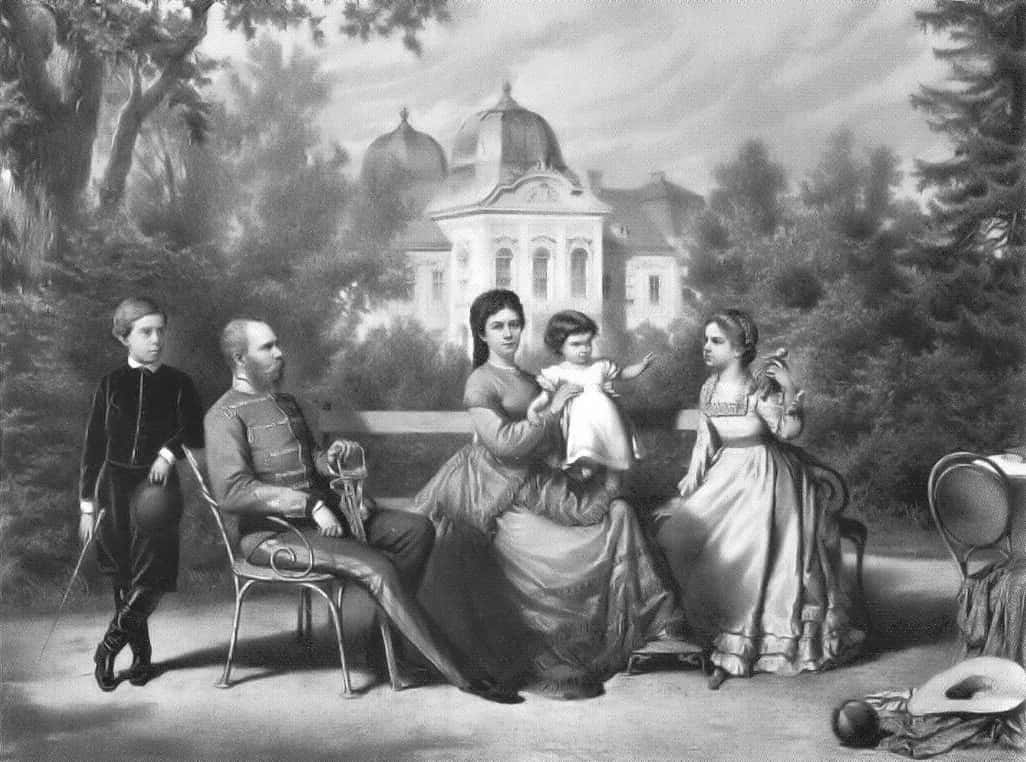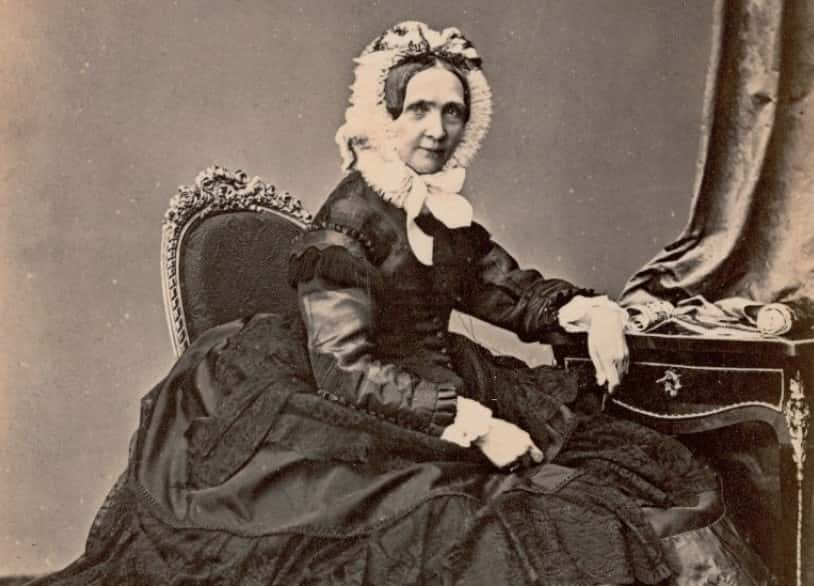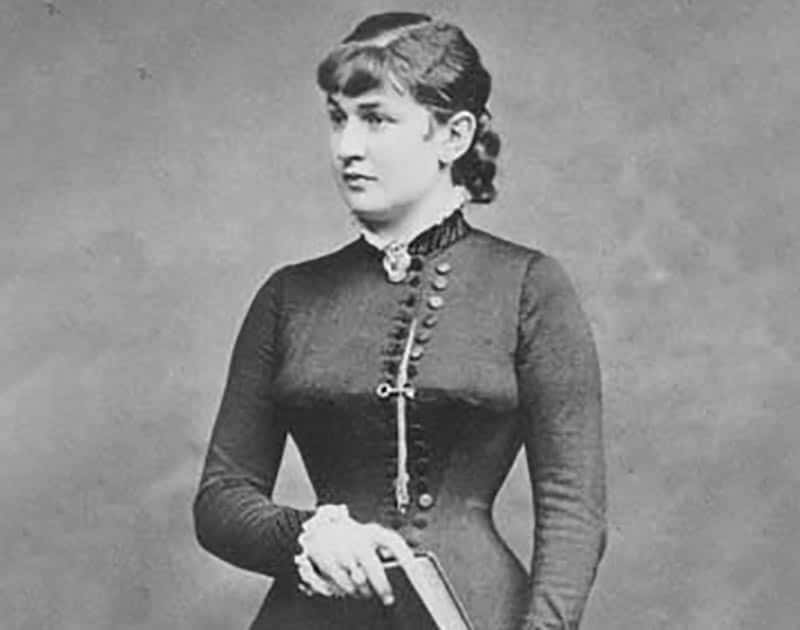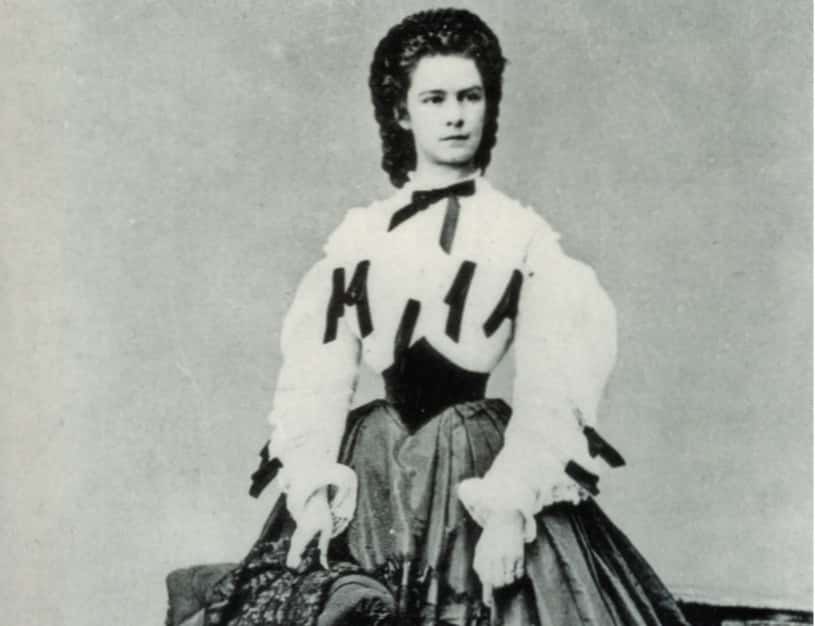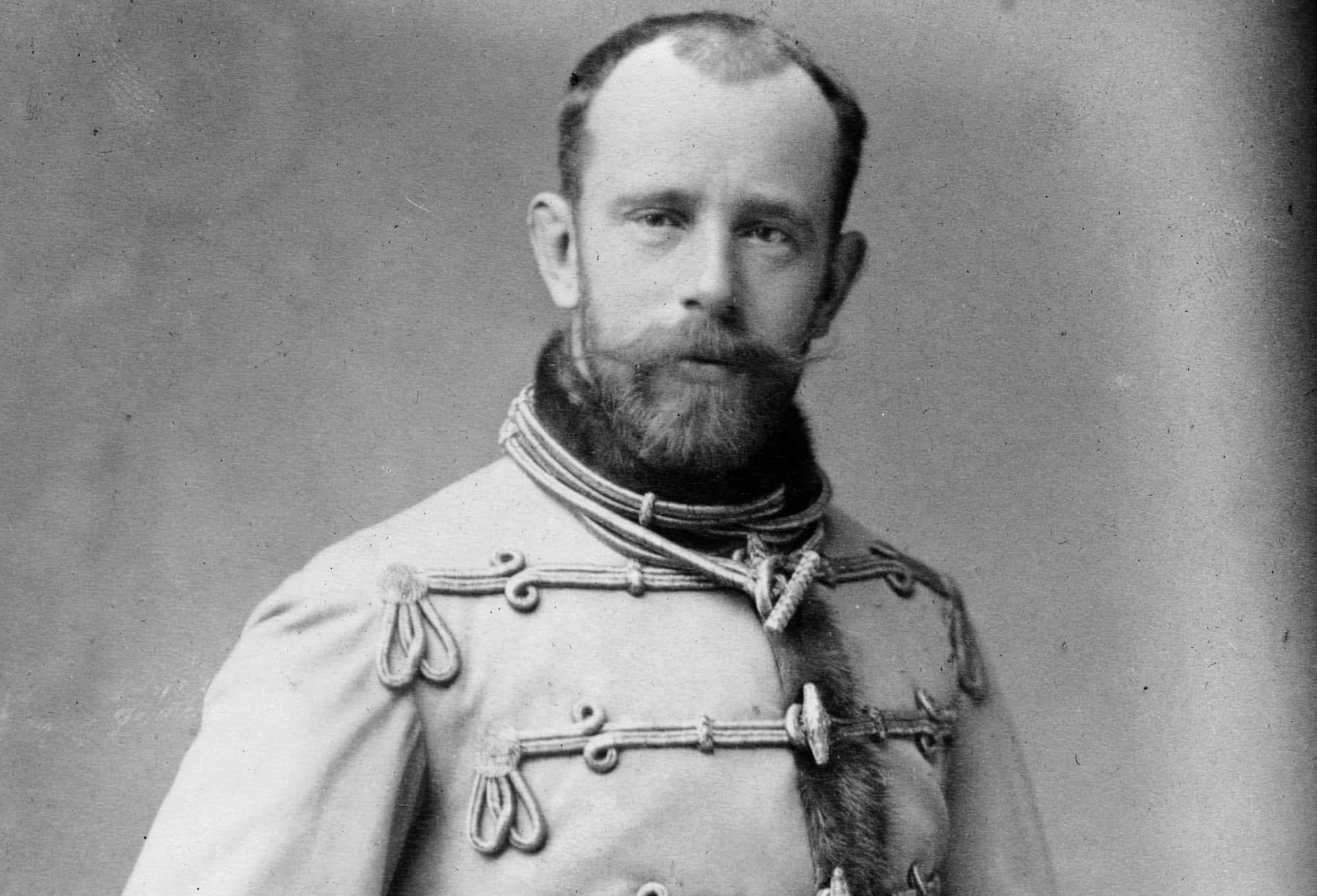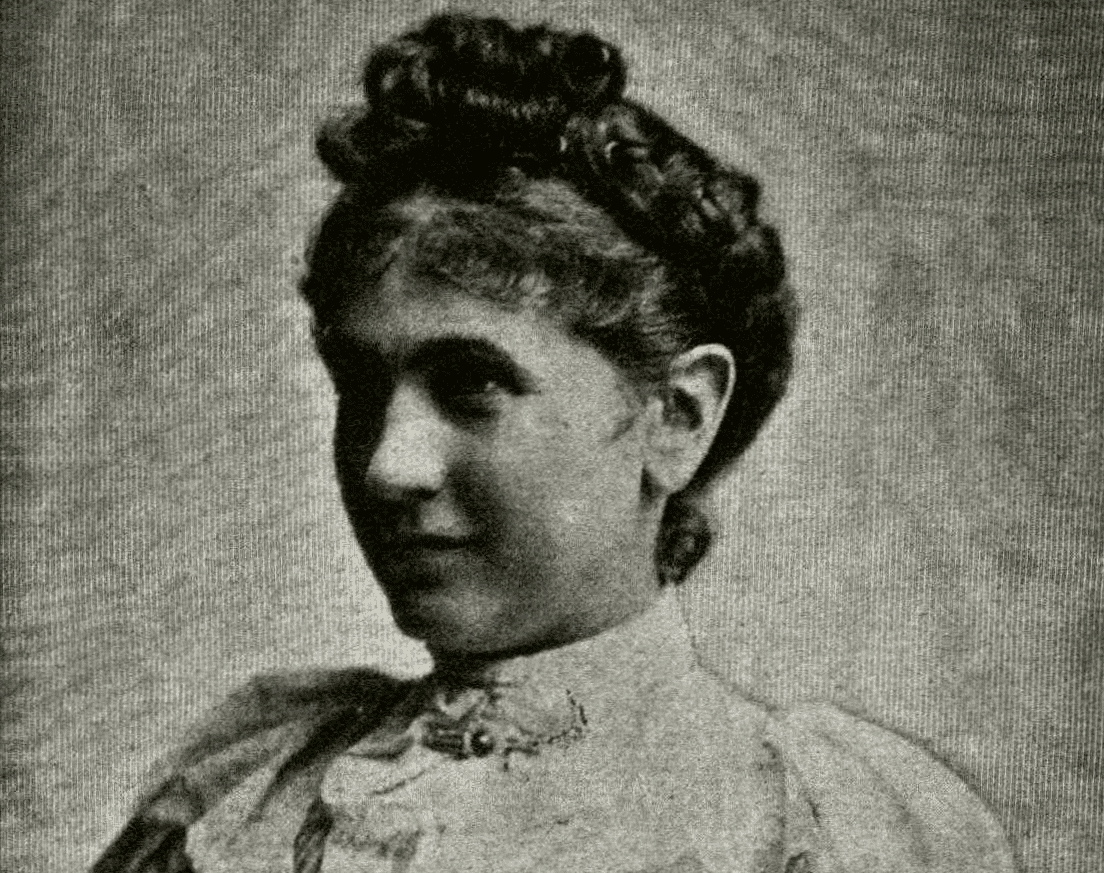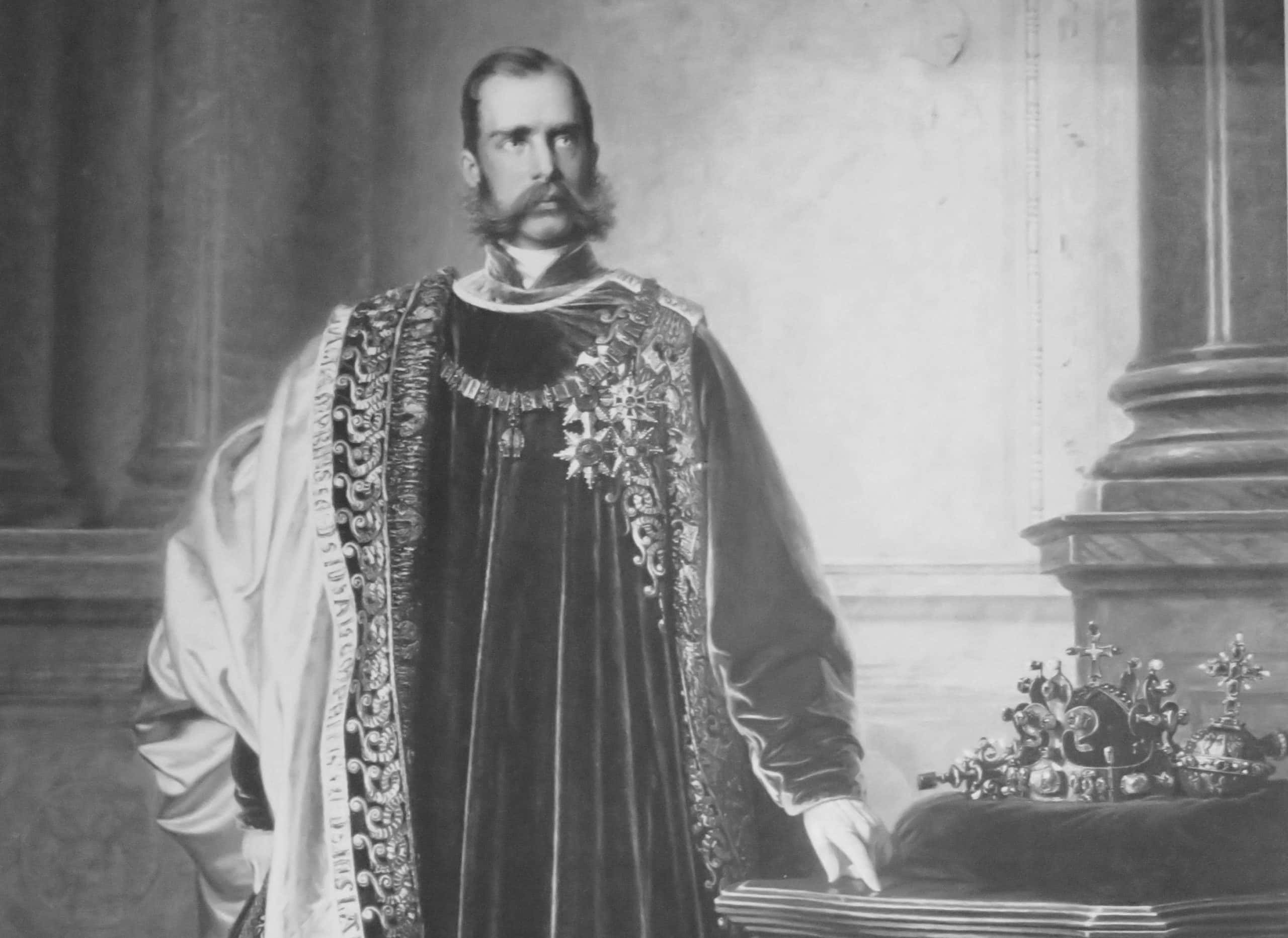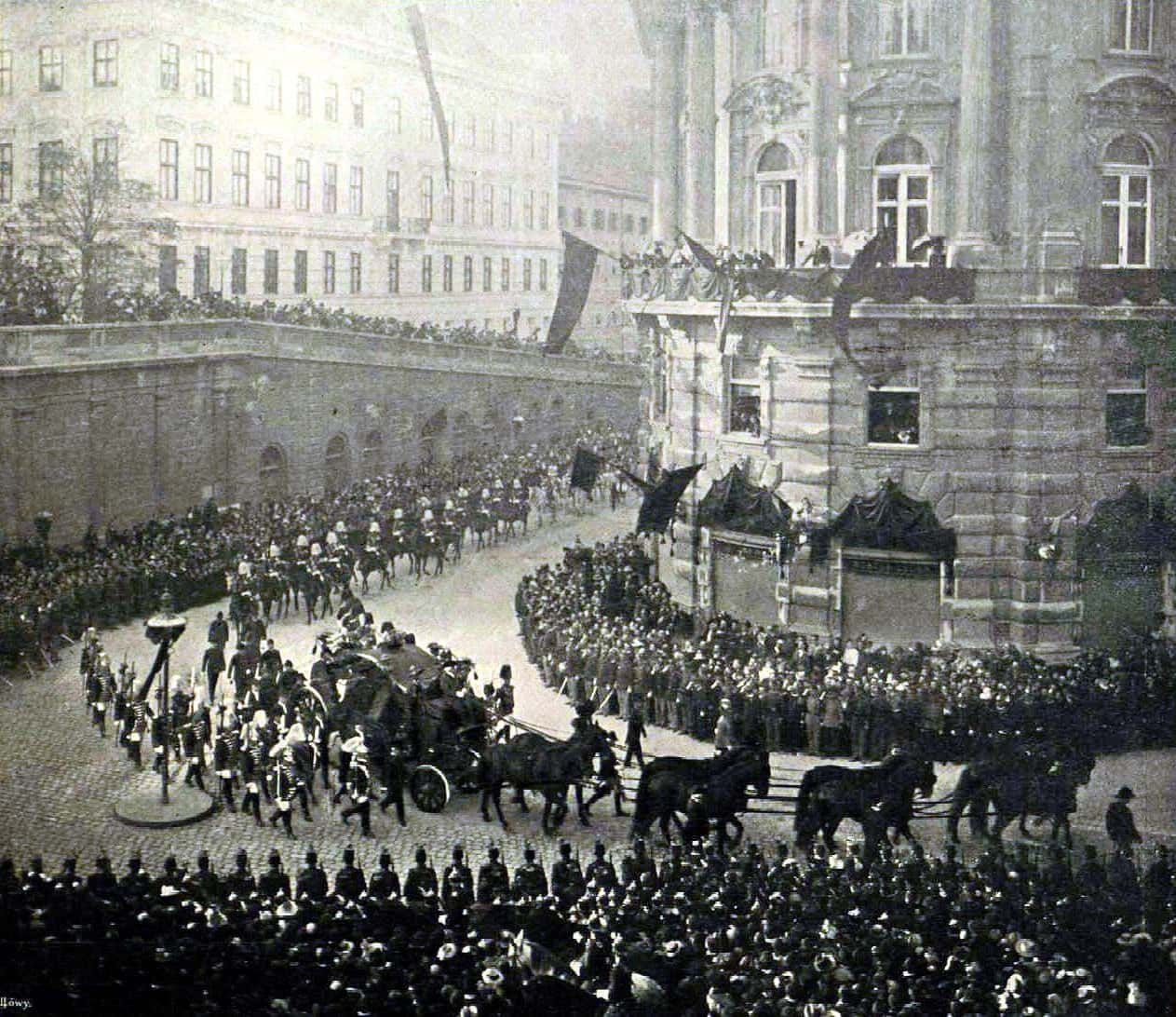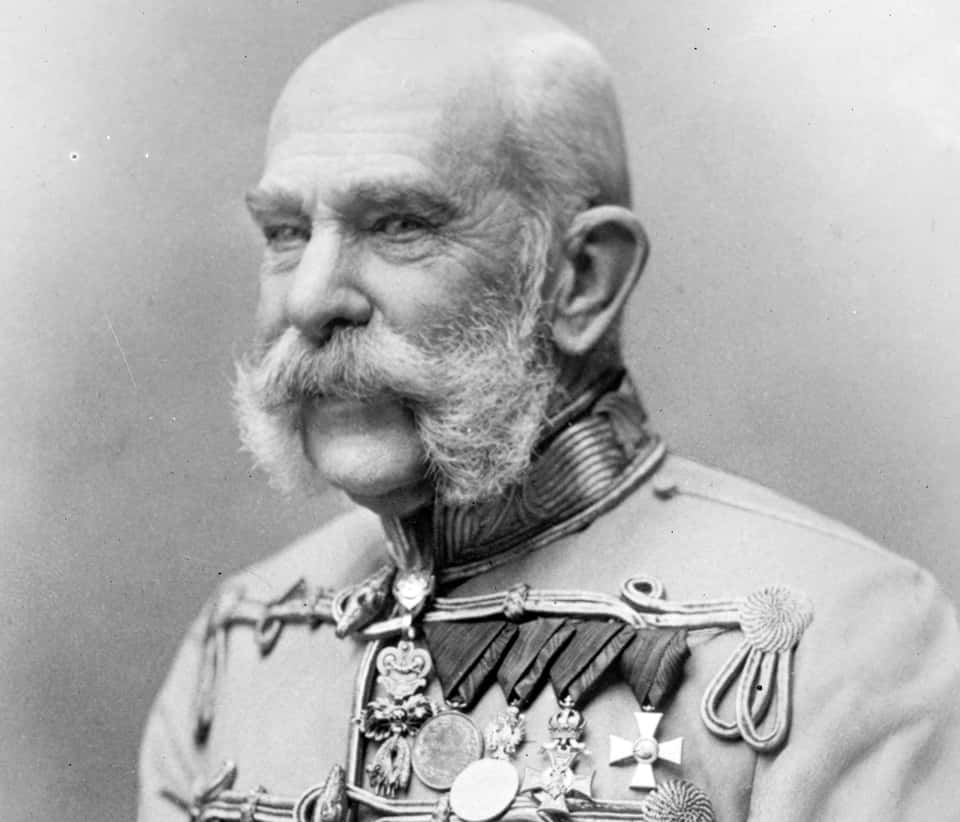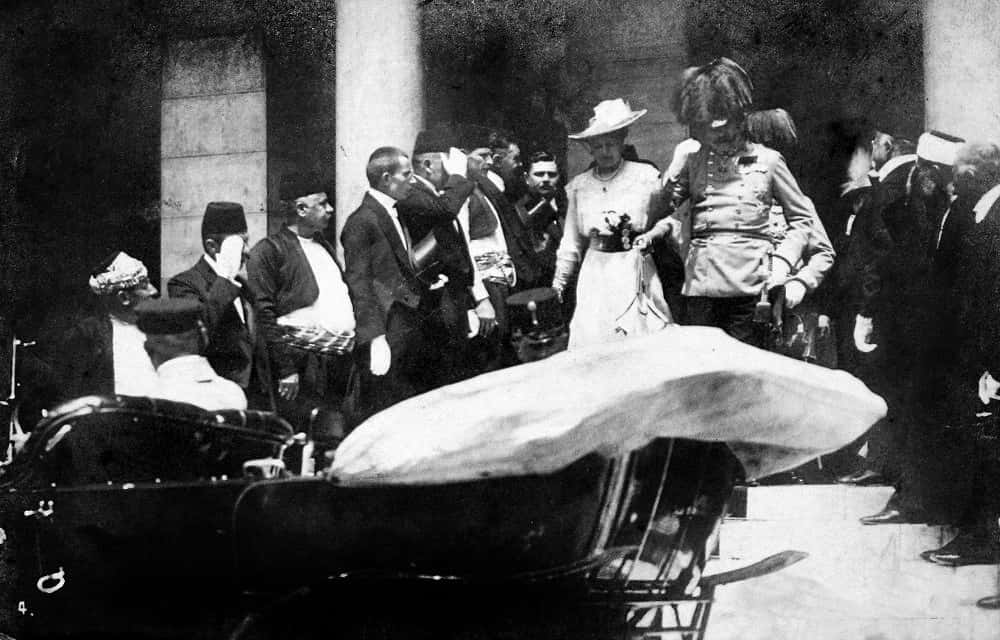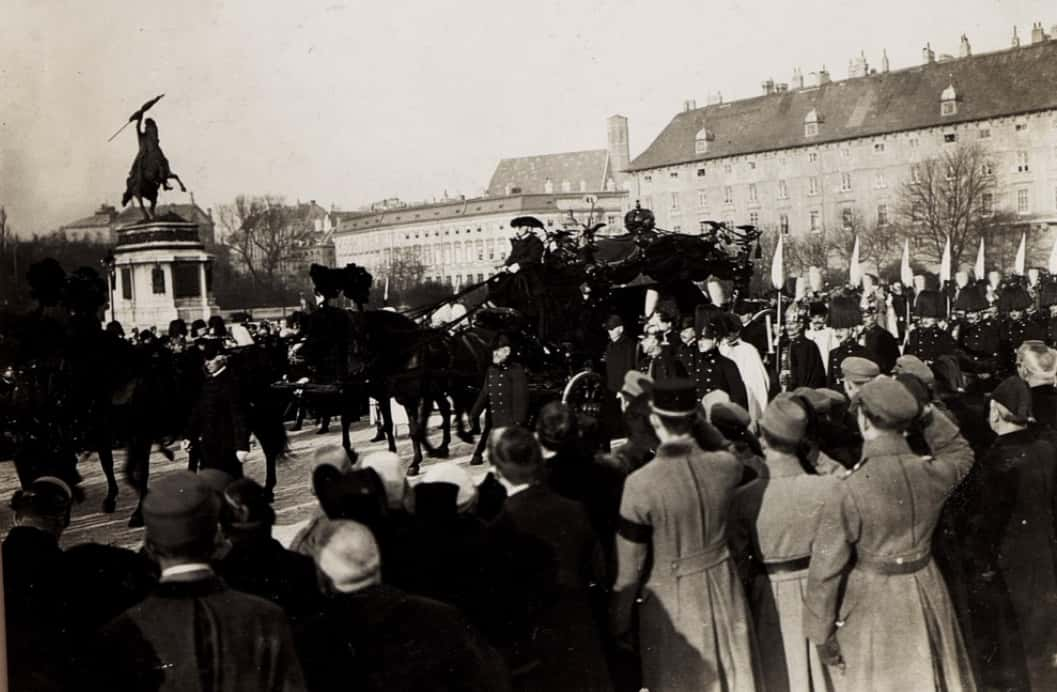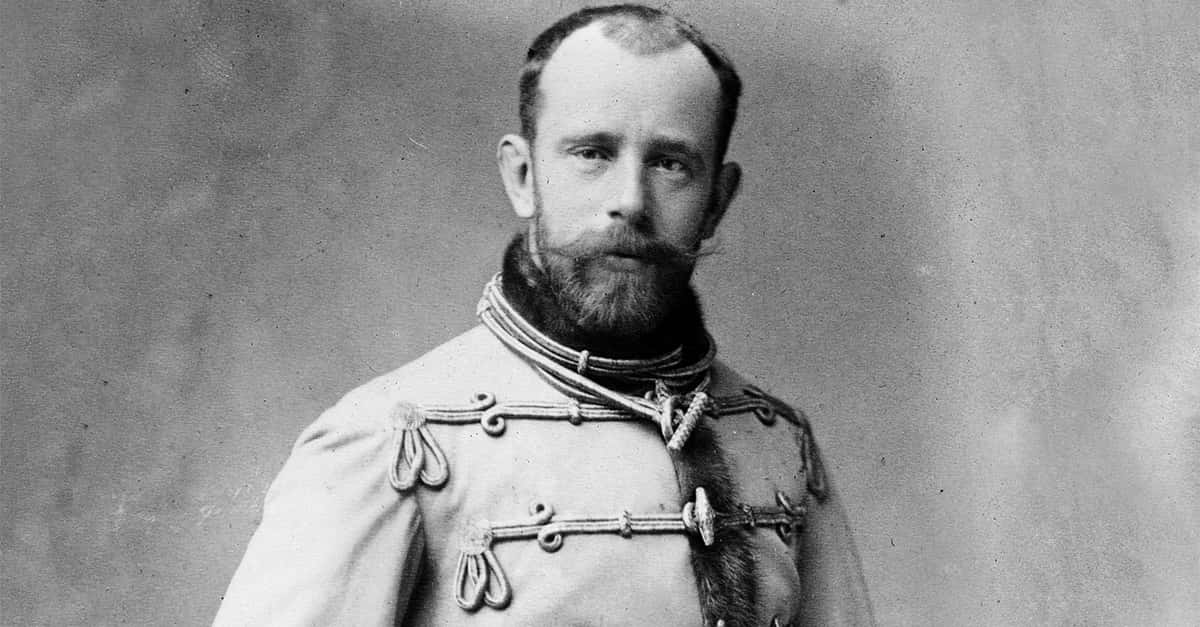Lots of historical figures are complicated, but they don’t get much more complicated than Franz Joseph I of Austria. A staunch monarch in an era when kings were going out of style, Franz Joseph made himself many enemies. As if that wasn’t already a ton to handle, his family life was complex, and marred by tragedy. Brilliant, stubborn, and kind in equal measure, it’s hard to say whether Franz Joseph was a good guy. Read on, and judge for yourself.
1. His Mom Used Him
The world welcomed Franz Joseph I of Austria on August 18, 1830. His parents, Archduke Franz Karl and Princess Sophie of Bavaria, were absolutely elated with his birth, but his dear old mom was especially excited. Franz Karl’s lack of ambition and drive was a disappointment to the power-hungry Sophie. Franz Joseph, however, would be a different story—and his mom was going to make sure of it.
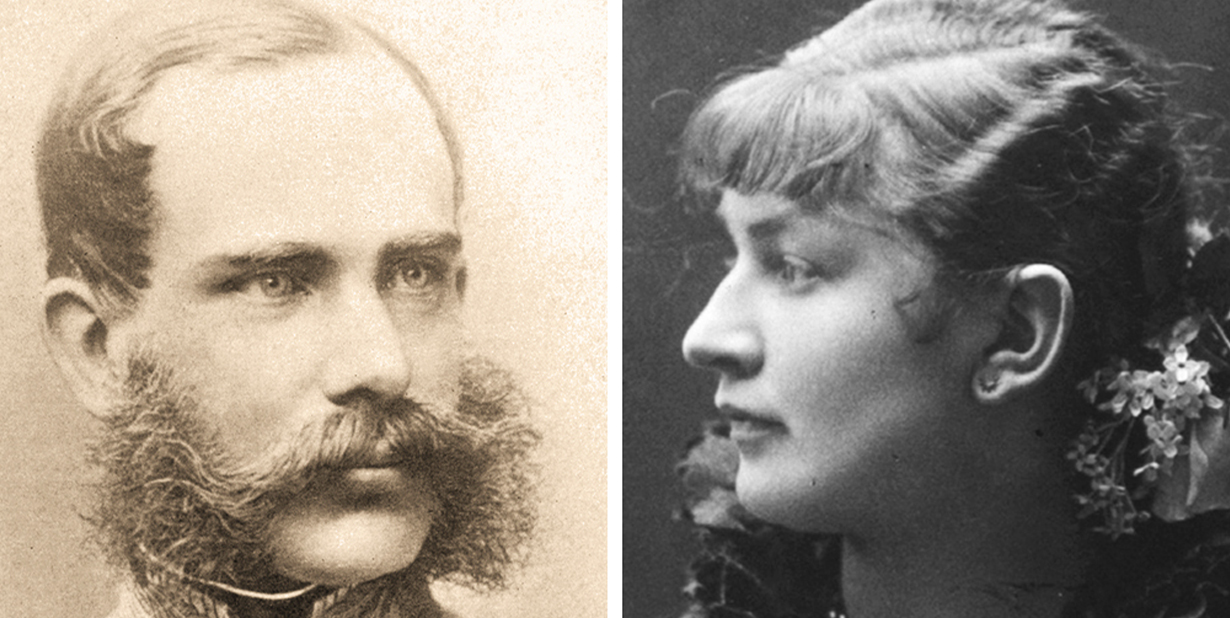
2. His Education Was Tough
As a potential heir to the imperial throne and successor to the Habsburg line, Franz Joseph’s upbringing was strict and regimented. At just seven years old, the little boy was already learning the art of statecraft, devoting around 18 hours a week to his readings. By the age of eight, the time he spent studying increased to a whopping 37 hours a week. All that book learning made him a brilliant boy, and it accelerated his journey to the Habsburg throne.
3. He Was A Child Genius
Thanks to his education and upbringing, Franz Joseph had a slew of talents under his belt. He spoke multiple languages, composed stylish sketches, danced, and developed a skill for memorization. He started his career as a colonel at the age of 13, where his cousin praised him for having “a certain bearing and dignity such as I have never seen at his age.”
Just a few years later, his talents were finally put to the test.
4. His Men Underestimated Him
On April 29, 1848, Franz Joseph arrived in Italy to fight on the front lines in the Revolutions of 1848. The man in charge of the campaign, Field Marshal Radetzky, was unimpressed at first by him. After all, the young man lacked practical experience on the battlefield, and the Field Marshall didn’t have the time to babysit the young royal. But Franz Joseph was full of surprises...
5. They Admired Him
Just a few days after Franz Joseph arrived at the Italian front, men on the opposing side opened fire on his position in Santa Lucia. Cannonballs whizzed overhead and landed mere feet away from him, but the young royal remained completely cool. Seeing the future monarch keep his head on his shoulder was a morale booster for the men around him, and it no doubt solidified his claim when he was pushed to take the throne.
6. He Took The Crown
As the Revolutions of 1848 plodded on, it became clear that Austria needed a strong, youthful, and energetic leader to take charge. Franz Joseph’s uncle and the current emperor, Ferdinand I, was a kind soul, but unfit to rule in such chaotic times. Determined to bring the Revolutions to an end, the court pushed for Franz Joseph to take over as emperor. He ascended to the throne on December 2, 1848.
However, despite keeping his cool in battle, the pressure of the title left him a bit...unhinged.
7. He Snapped Under Pressure
The title of emperor must’ve felt especially heavy to 18-year-old boy. In the days following his ascension, Franz Joseph spent many sleepless nights poring over the affairs of the state. On the evening of December 16, the usually composed Franz Joseph snapped. He put aside his work and set about smashing down the mirrored door of the apartments he was staying in. Hey, even emperors need to let off some steam!
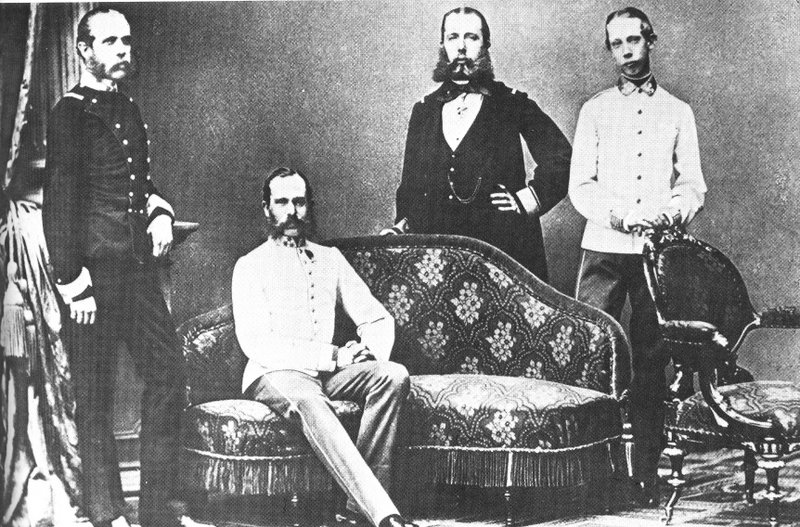 Ludwig Angerer, Wikimedia Commons
Ludwig Angerer, Wikimedia Commons
8. He Misunderstood His People
After the door-smashing incident, it was time for Franz Joseph to really buckle down and proactively address the uprisings sweeping across the empire. Attempting to quell the uprisings with as few lives lost as possible, he granted a constitution in early 1849 under the guidance of Prince Schwarzenberg the Third. Unfortunately, the constitution he granted only served to make his subjects even angrier.
9. He Thought Kingship Was His Right
Having grown up believing that kingship is a divine right, Franz Joseph wasn’t much interested in granting a constitution that gave his people power. Instead, his version of a constitution granted the monarch (a.k.a: himself) even more political power. Anger continued to brew among his subjects, and his grip over the territories he ruled grew ever more unstable.
Hungary was particularly angry—and the emperor was about to feel their wrath.

History's most fascinating stories and darkest secrets, delivered to your inbox daily.
10. They Revolted Against Him
Why was Hungary so irate? Franz Joseph’s predecessor had granted the Kingdom of Hungary many civil and political rights, pushing the kingdom towards societal reform. As you can probably imagine, Franz “Divine Right to Rule” Joseph had issues with these newly granted rights, and promptly axed Hungary’s budding reforms. Unwilling to give up, Hungary demanded independence; in response, he turned the full might of his empire against Hungary.
11. He Marched To Hungary
Initially, the fighting went relatively smoothly for Franz Joseph. He repelled an attempt by the Hungarians to take Vienna, and even managed to capture the Hungarian towns of Buda and Pest with a force of 70,000 men. Not only did these victories strengthen his sense of strength and prestige, but it solidified the sense that he was fighting for the right cause. Unfortunately, things soon took a turn for the worse.
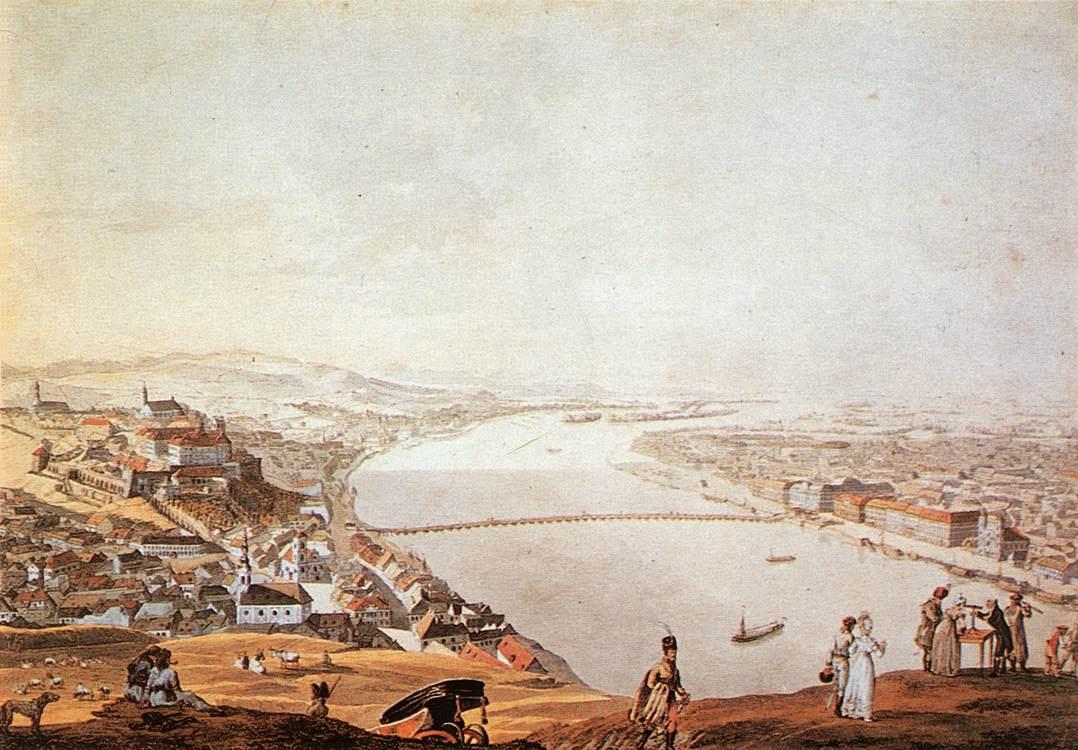 Hanusfalvi Petrich András, Wikimedia Commons
Hanusfalvi Petrich András, Wikimedia Commons
12. The Tides Turned Against Him
Franz Joseph’s winning streak didn’t last long. In April 1849, the Hungarian government scored several victories against the emperor, and even managed to retake Buda and Pest. It was utterly humiliating; while visiting the front lines, he could see how deeply shaken his men were. Seeing his men strengthened his resolve to win this fight—even if it meant throwing away his pride.
13. He Threw Away His Pride
On April 24, 1849, Franz Joseph made a plea to Tsar Nicholas I of Russia for help against the Hungarians. In his words, he wished to “save modern society from certain ruin” and “prevent the Hungarian rebellion from becoming a European calamity.” Although it embarrassed Franz Joseph to ask a foreign power for help, the Tsar acquiesced and sent 280,000 men to his aid. With that, the emperor began to turn the tides.
14. He Personally Led His Men
Although Franz Joseph’s generals carried out most of the fighting, the young emperor was not above throwing himself into the fray. In June 1849, he visited the front with his brother, Maximilian. On June 29, the emperor personally led his men into the town of Raab, urging them across a bridge that was going up in flames. With such a fierce emperor at their side, it’s no wonder that the Austrians soon won—but the struggle was far from over.
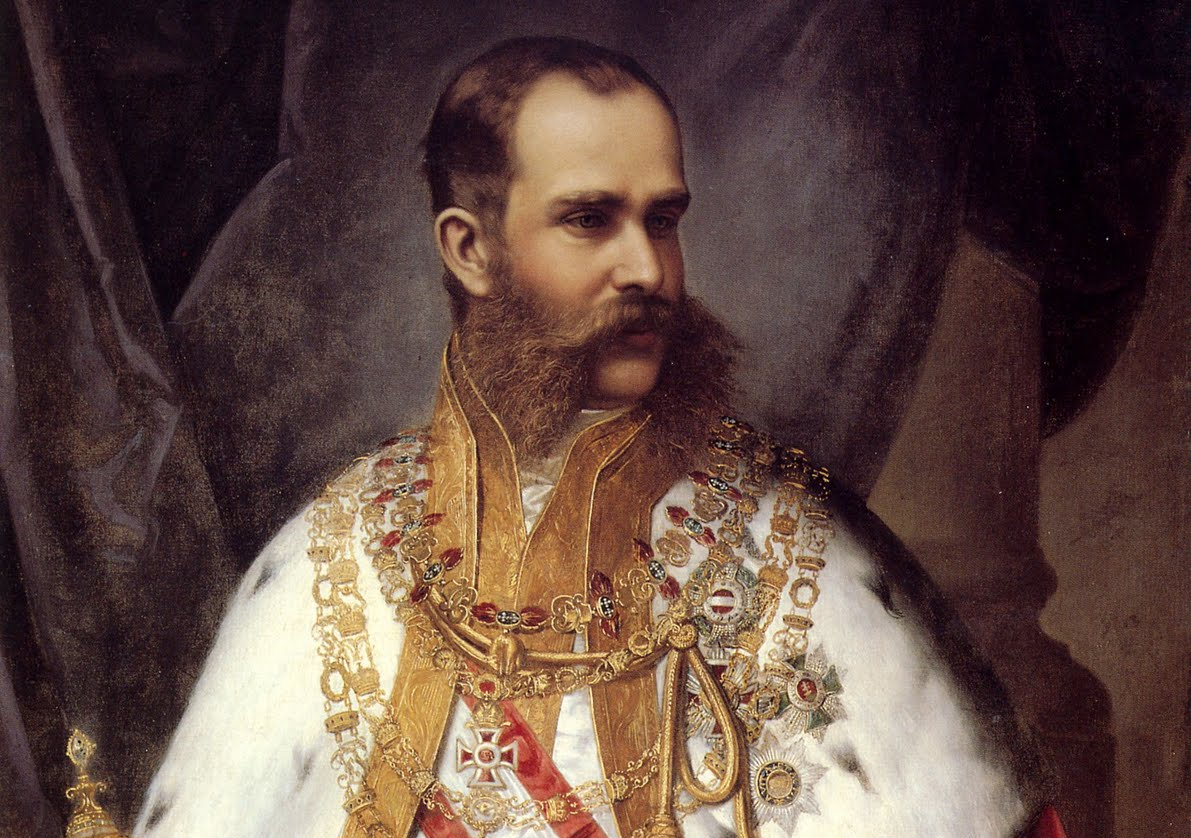 Franz Schrotzberg, Wikimedia Commons
Franz Schrotzberg, Wikimedia Commons
15. He Punished The Rebels
After having the audacity to question his rule, Franz Joseph figured that the Kingdom of Hungary needed some punishment. He turned to General Julius Jacob von Haynau to carry out his wishes. Now, this probably wasn’t the best idea the ruler ever came up with—Haynau, nicknamed the “Hangman of Arad,” was a notoriously savage man.
No surprise, then, that appointing Haynau turned out to be a huge mistake.
16. His Punishments Went Too Far
Franz Joseph ordered Haynau to only carry out executions after his approval. Haynau was absolutely shocked by the young emperor’s sense of restraint; in his eyes, justice needed to be swift and decisive. His arguments won over Franz Joseph’s supporters, and so, with little choice, the emperor rescinded his order. Haynau went on to execute 114 Hungarians in the emperor’s name, which only fanned the flames of rebellion even harder.
17. He Abolished Their Rights
Having secured his hold over Hungary, Franz Joseph felt it was safe for him to completely abolish any promises for a constitution. Instead, he ruled as a “benevolent soldier autocrat,” tying the power of his crown with his ability to lead the empire to victory in battle. Confident in his abilities, Franz Joseph took the time to travel across his vast empire and relax a little. In fact, he may have let his guard down a little bit too much…
18. He Nearly Lost His Life
On February 18, 1853, Franz Joseph was taking a stroll in the imperial palace when a Hungarian nationalist named Janos Libenyi made an attempt at the Emperor’s life. As the two walked past each other, Libenyi thrust a sharp object at Franz Joseph’s neck—only for the high collar of his uniform to take the brunt of the impact. His would-be killer turned to flee, but he didn’t get far.
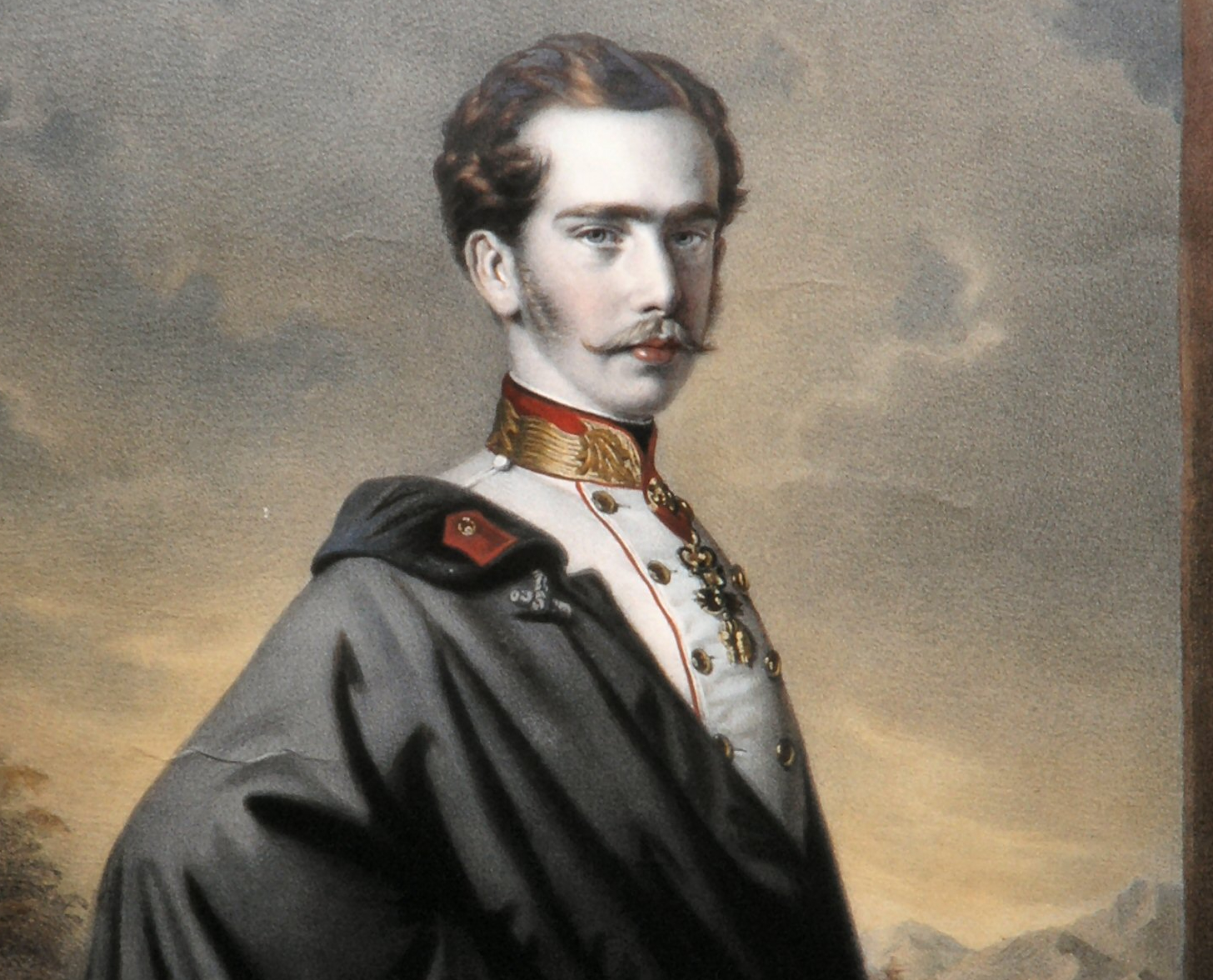 Adolf Dauthage, Wikimedia Commons
Adolf Dauthage, Wikimedia Commons
19. He Showed Kindness At Surprising Times
One of Franz Joseph’s officers immediately struck the fleeing man with his sabre, while a passerby seized Libenyi and held him until the authorities took him into custody. The emperor, still bleeding from the neck, insisted that the authorities treat Libenyi with a measure of respect—not that it saved Libenyi from being hanged. Upon Libenyi’s demise, Franz Joseph made the classy move of granting a small pension to Libenyi’s mother.
With that, public opinion on Franz Joseph took a surprising turn.
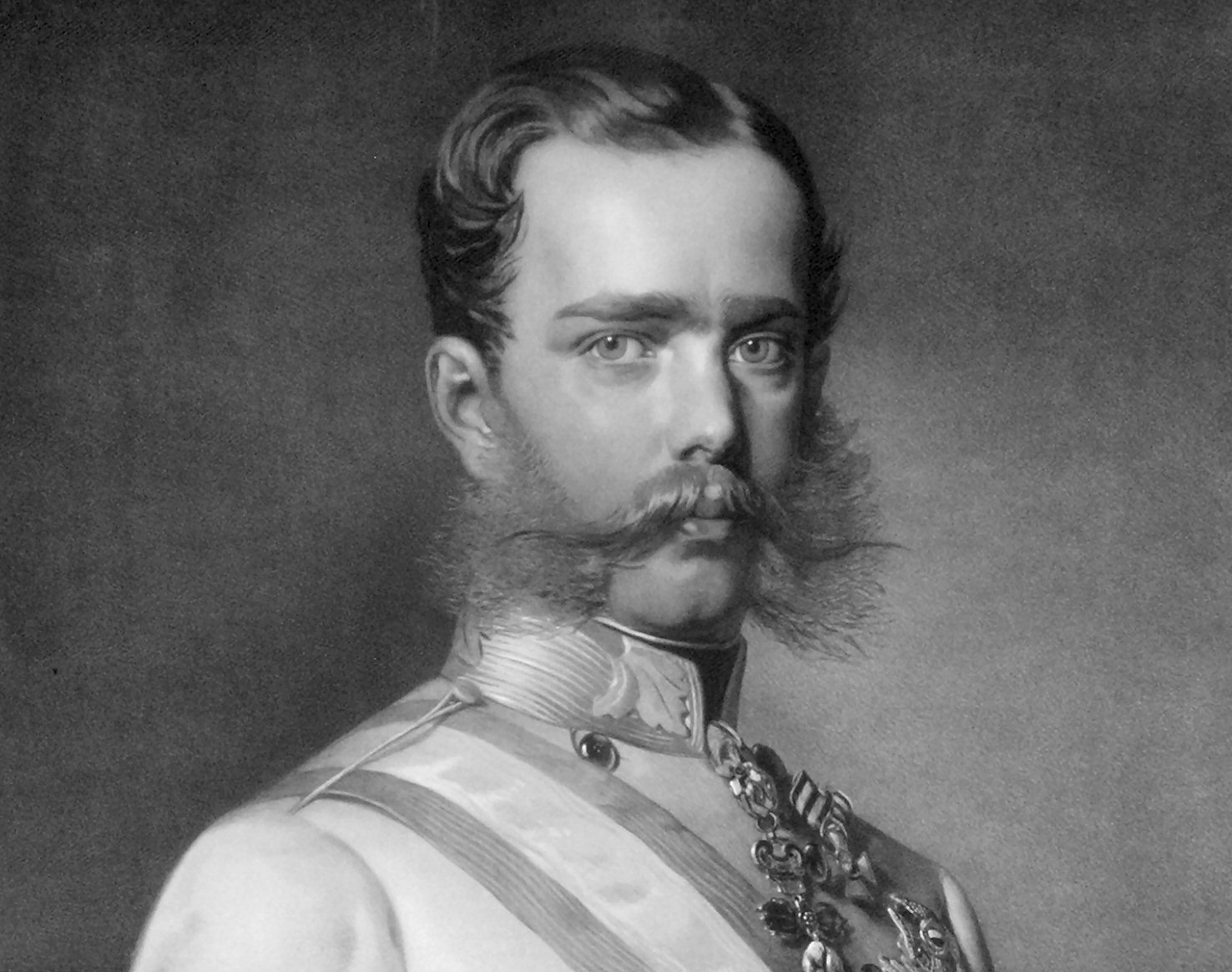 Eduard Kaiser, Wikimedia Commons
Eduard Kaiser, Wikimedia Commons
20. The Public Sympathized With Him
Franz Joseph’s courage in the face of imminent demise earned him sympathy, and even sentiments of loyalty, from the public. After recovering from his injuries, he made a trip to St. Stephen’s Cathedral to give thanks, where crowds lined the streets greeted the Emperor with unbridled enthusiasm. For Franz Joseph, this was a sign of good things to come for his rule, his empire…and maybe even his love life.
21. He Married, Habsburg-Style
As head of a powerful empire, the court expected Franz Joseph to marry ASAP and start producing some Habsburg heirs. At the insistence of his mom, he settled on marrying Princess Helene of the House of Wittelsbach. Of course, the fact that Princess Helene was his cousin didn’t seem to bother anyone (and inter-family marriages were pretty on-brand for the Habsburgs anyway).
During their first meeting, Franz Joseph fell head-over-heels in love…but not with Princess Helene.
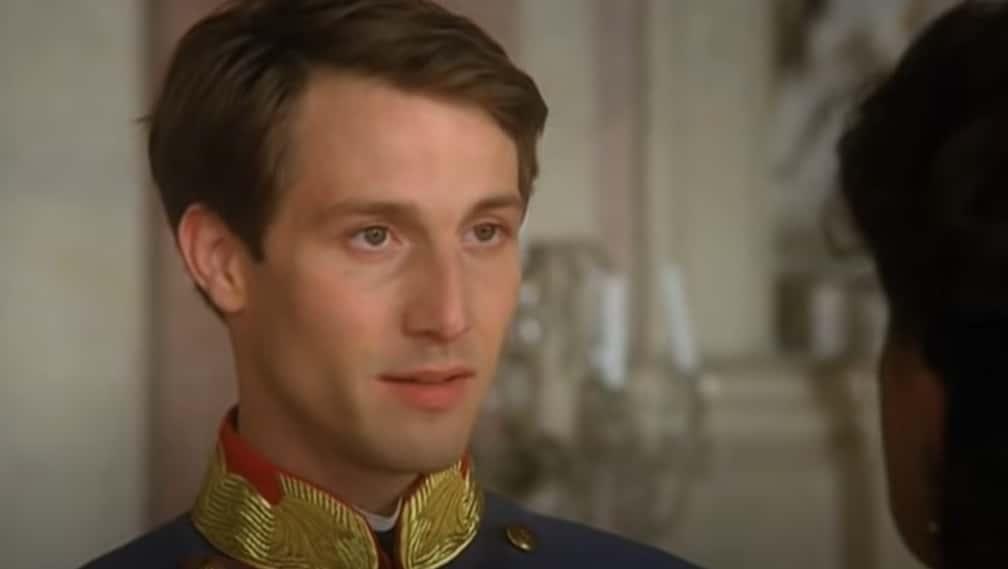 Sisi (2009), EOS Entertainment
Sisi (2009), EOS Entertainment
22. His Betrothed Bored Him
Franz Joseph, along with one of his younger brothers and his mother in tow, sped their way to meet Princess Helene. Upon meeting Helene, all sense of excitement vanished for Franz Joseph. Princess Helene was just too boring for Franz Joseph; she filled the awkward silence between them with a stream of idle chatter about nothing at all. Now, Helene’s sister, on the other hand…
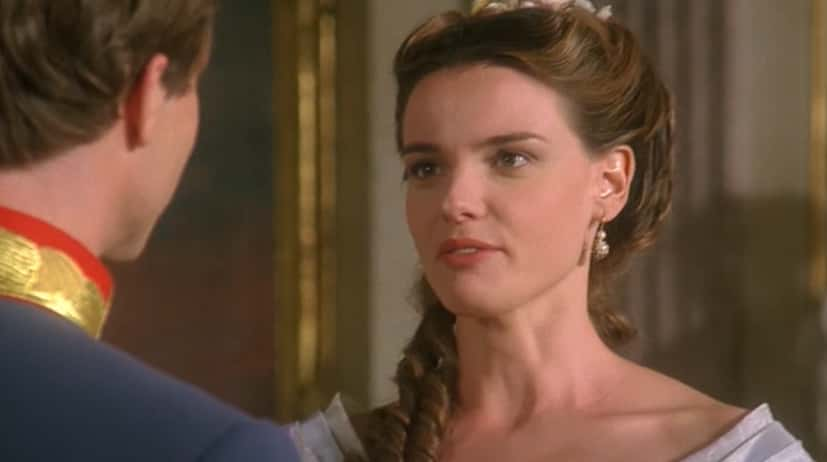 Sisi (2009), EOS Entertainment
Sisi (2009), EOS Entertainment
23. He Fell In Love With The Wrong Girl
Princess Elizabeth (nicknamed “Sisi”) had accompanied Helene for her meeting with the Emperor, and she was an absolute firebrand. She was lively, she was expressive, and she was beautiful. Franz Joseph spent most of their time together plainly ignoring Elizabeth and staring intently at Sisi. Bewildered by this sudden turn of events, Sisi pointedly ignored Franz Joseph, but to no avail. The Emperor had fallen in love with the wrong girl.
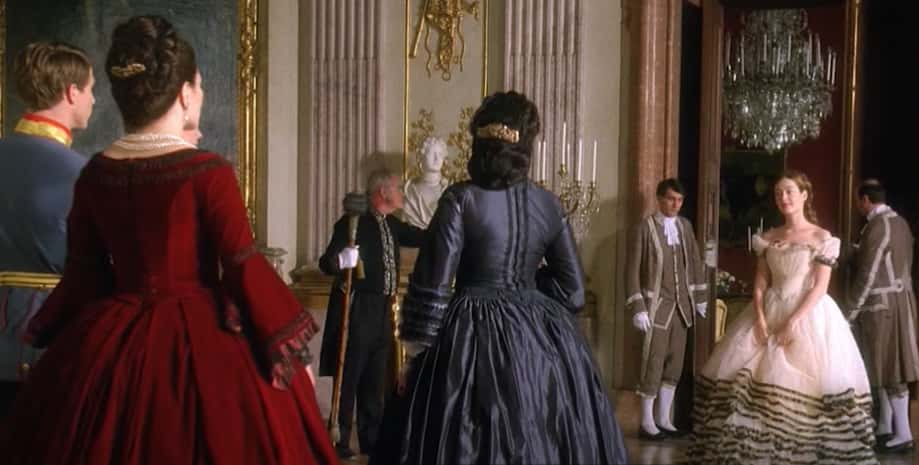 Sisi (2009), EOS Entertainment
Sisi (2009), EOS Entertainment
24. He Wanted Her
The next day, Franz Joseph just could not shut up about Sisi, and pretty much waxed poetic about her to his mom. Even though his mom pointed out that she was way too young for him (Sisi was only 15!), Franz Joseph insisted that she was the one. “She is as fresh as a newly peeled almond, and what a splendid crown of hair frames such a vision! How can anyone help loving such tender eyes and lips like strawberries!” he crowed to his mom.
Yep, the Emperor had it bad, and he wasn’t going to let anyone stop him from marrying Sisi.
25. He Got What He Wanted
Eventually, Franz Joseph’s stubbornness wore his mom down, and she agreed to a match between him and Sisi. Franz Joseph was absolutely over the moon; he was going to marry the girl of his dreams! He spent the next eight months of his engagement to her in a state of bliss, visiting her often and sending gifts. In April 24, 1854, the two wed. It’s just too bad that no one asked Franz Joseph’s bride what she wanted.
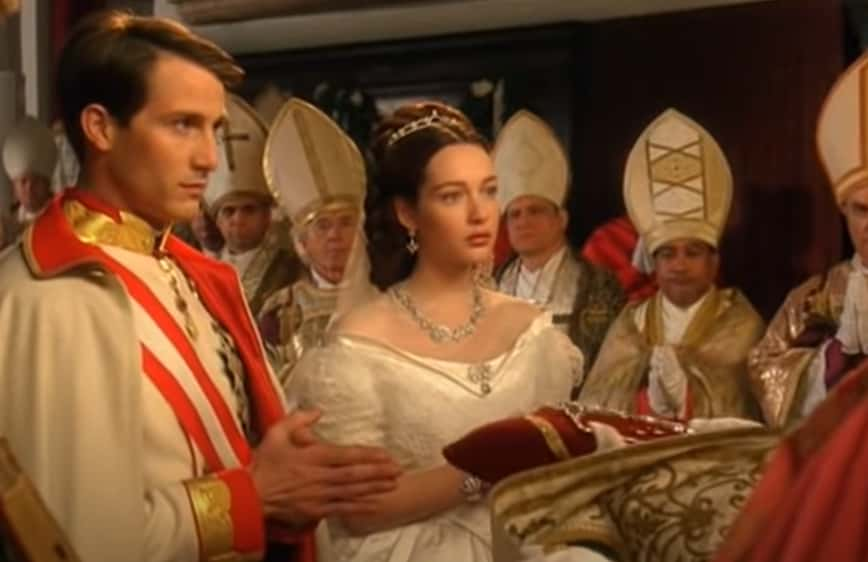 Sisi (2009), EOS Entertainment
Sisi (2009), EOS Entertainment
26. His Wife Hated Court Life
Unfortunately, Franz Joseph’s new wife never took a liking to court life. As an Empress, Sisi lived her life under the watchful eye of the court and Franz Joseph’s mother, which was absolutely stifling. To keep his wife happy, Franz Joseph made arrangements for the two of them to live 15 miles outside of the capital, giving Sisi a measure of privacy. He would ride to work everyday, and be back home by his wife’s side in the evening. It didn’t make her happy, but man, talk about devotion!
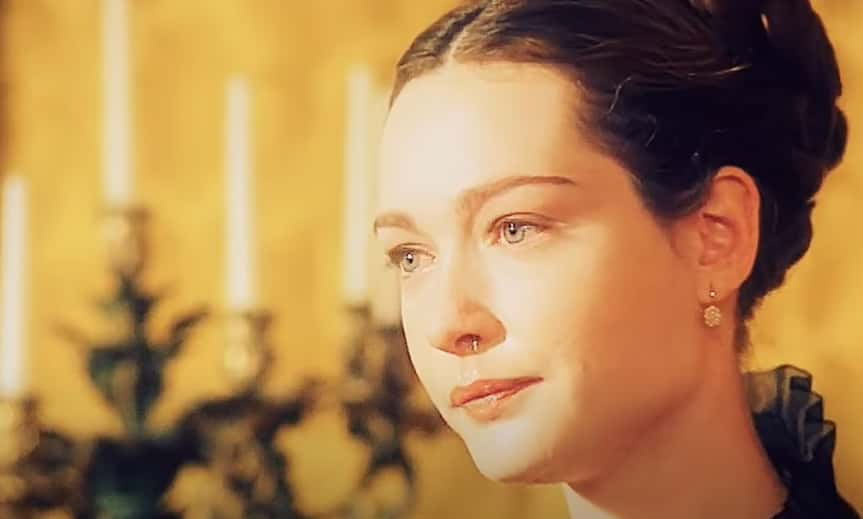 Sisi (2009), EOS Entertainment
Sisi (2009), EOS Entertainment
27. He Loved His Children
Very quickly, Franz Joseph and Sisi welcomed two baby girls to the world: Sophie (named after Franz Joseph’s mom) on March 5, 1855, and Gisela on July 12, 1856. The two girls could not inherit Franz Joseph’s throne, but he loved them nevertheless. In fact, one of the few times Franz Joseph ever snapped at his mother was because of how she treated his two precious baby girls.
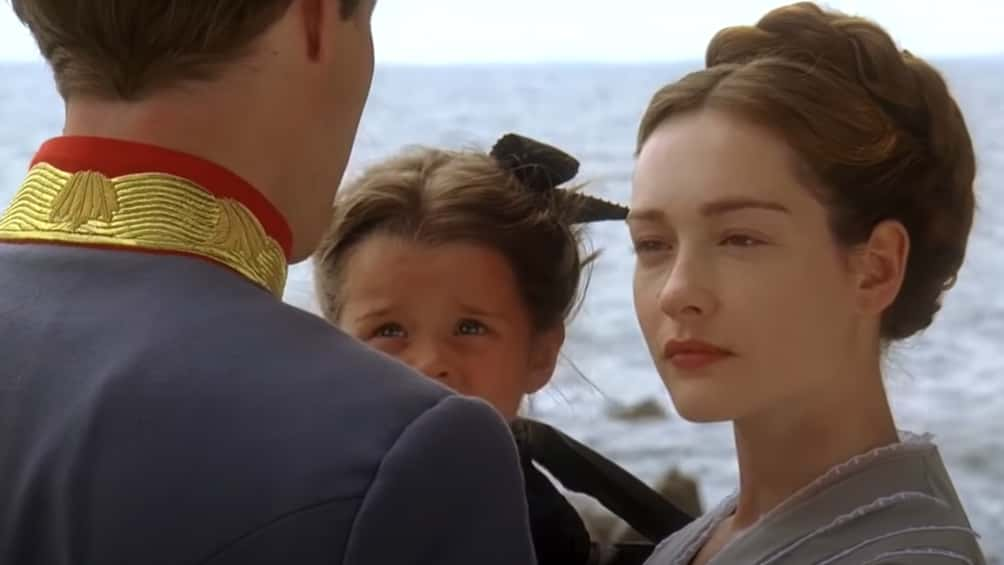 Sisi (2009), EOS Entertainment
Sisi (2009), EOS Entertainment
28. He Defended His Daughters
Since Franz Joseph and his wife often went abroad, the care of his two daughters frequently fell to his mom, and she...did not do a good job. Franz Joseph’s mother often confined the two girls to their rooms, only taking them out when she wanted to show them off. When Franz Joseph found out what she was doing to his girls, he was horrified. He admonished his mother and even began taking his little girls with him on his travels. This turned out to be a devastating mistake.
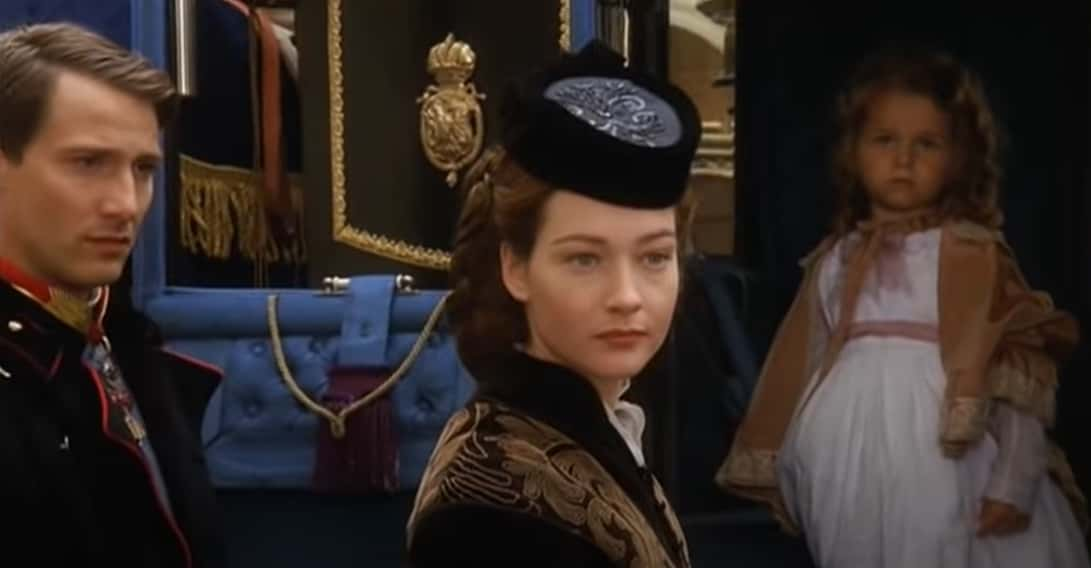 Sisi (2009), EOS Entertainment
Sisi (2009), EOS Entertainment
29. Tragedy Struck His Firstborn
On May 5, 1857, Franz Joseph, his wife, and two daughters arrived in Pest, Hungary. The long journey was hard on the little girls, and soon, both caught the measles. Gisela, the stronger of Franz Joseph’s two daughters, soon recovered, but Sophie was not so lucky. On May 29, 1857, Franz Joseph sent a heartbreaking message from Buda back to his mother that read, “Our little one is an angel in heaven. We are crushed.”
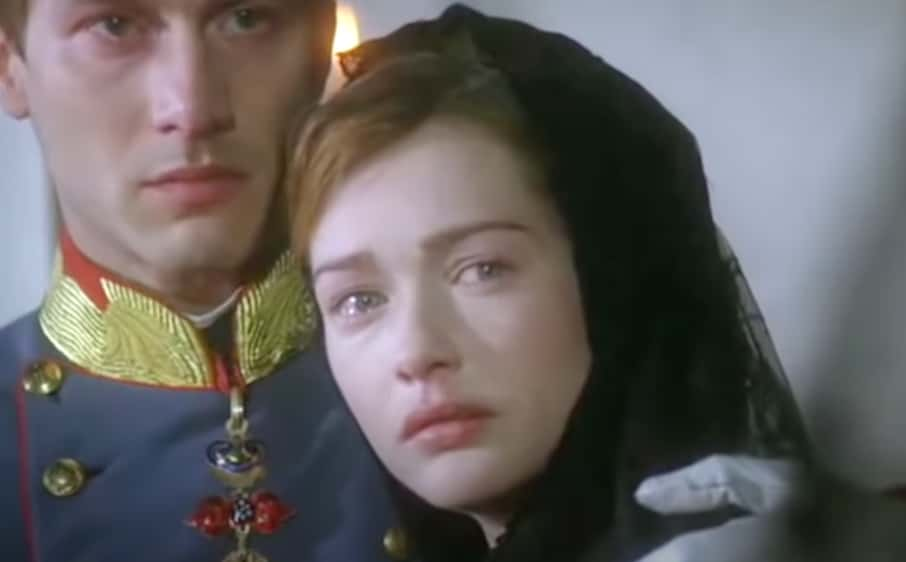 Sisi (2009), EOS Entertainment
Sisi (2009), EOS Entertainment
30. He Got His Heir
Both Franz Joseph and his wife mourned the passing of their little girl for months afterward. However, their shared bereavement made their relationship stronger; for once, Franz Joseph could truly empathize with his wife. There was another light at the end of the tunnel too: Sisi was pregnant again, and gave birth on August 21, 1858. This time, the baby was a boy, who they named Rudolf Franz Karl Joseph. Franz Joseph finally had an heir—but could that save his marriage?
 Sisi (2009), EOS Entertainment
Sisi (2009), EOS Entertainment
31. Conflict Forced Him To Act
Franz Joseph’s moment of peace barely lasted a year when he found his empire embroiled in conflict once again. Rumors emerged that Napoleon III of France wanted to push Franz Joseph’s forces out of the Kingdom of Piedmont-Sardinia. As the Kingdom’s forces grew, it became clear to Franz Joseph that the rumors were true. It was time for Franz Joseph to once again lead his empire to victory.
32. He Began His Invasion
On April 24, 1859 Austrian forces invaded the Kingdom of Piedmont-Sardinia. Franz Joseph planned to lead his men himself, and made preparations to leave—over the protests of his poor, beleaguered wife. It was hard for Franz Joseph to leave his beloved (she openly wept when he left on May 29), but leave he did. Soon in direct command of his men, he still found time to write letters back to Sisi—but the contents of those letters were absolutely horrifying.
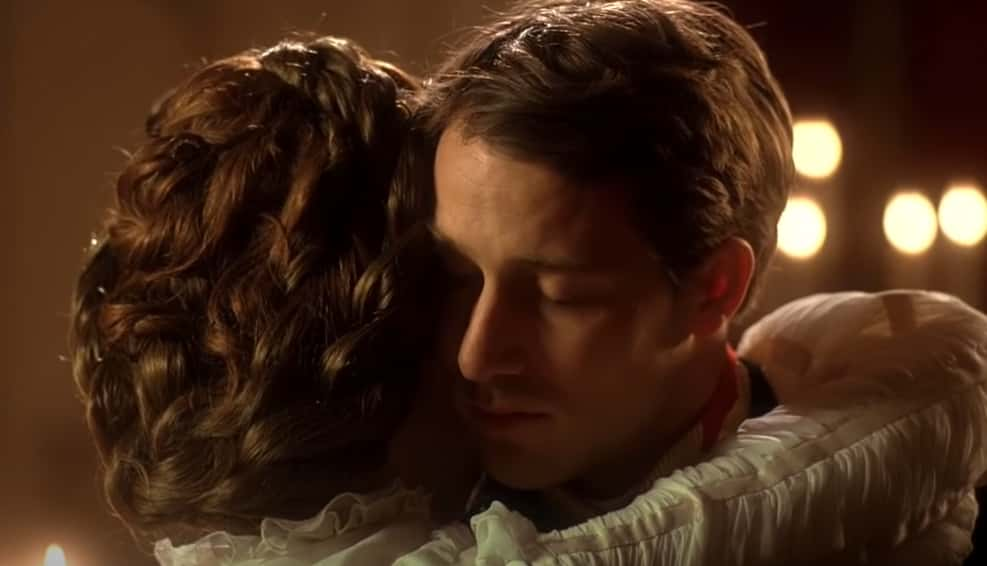 Sisi (2009), EOS Entertainment
Sisi (2009), EOS Entertainment
33. The Battle Sickened Him
The fighting was bloody and intense. Although Franz Joseph’s men had superior artillery, the French were tenacious. Franz Joseph wrote back to Sisi of the confusion of battle and of the sickening carnage on the field. Franz Joseph’s opponent evidently agreed with this view; a couple of months into the fighting, Napoleon III proposed an armistice. By July 11, 1859, Franz Joseph and Napoleon III signed a treaty, putting an end to the fighting.
It was time for Franz Joseph to return home—and he was in for an unpleasant surprise.
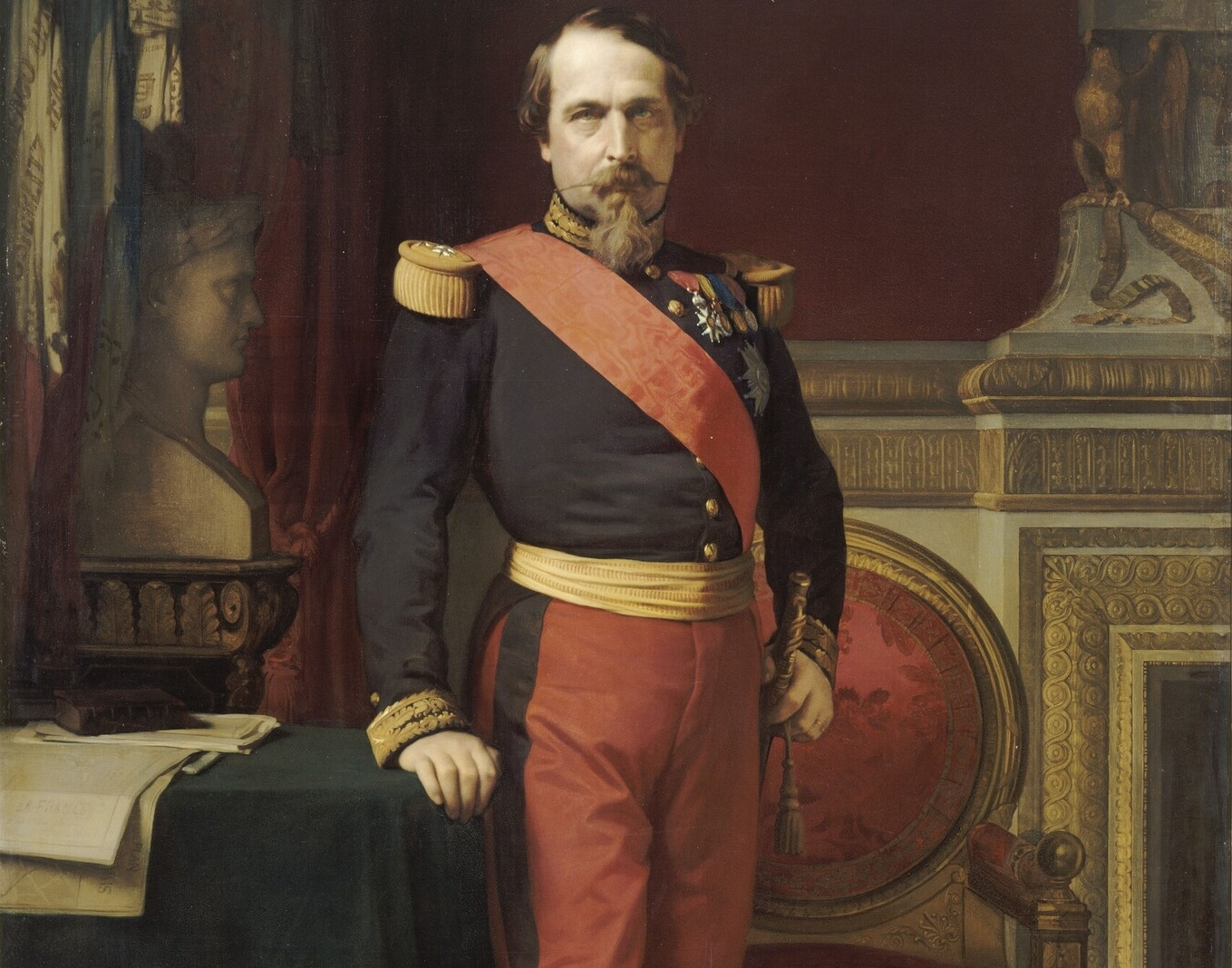 Hippolyte Flandrin, Wikimedia Commons
Hippolyte Flandrin, Wikimedia Commons
34. They Doubted His Abilities
Franz Joseph returned to Vienna, but it wasn’t to the sounds of cheers and celebration. Instead, he was greeted by disappointment at his performance in Piedmont-Sardinia, alleged plots on his life, and calls for the introduction of a constitutional government. Franz Joseph categorically refused to grant a constitution, even saying that he would rather “face any storm rather than that!” And that wasn’t the only issue that Franz Joseph had to contend with.
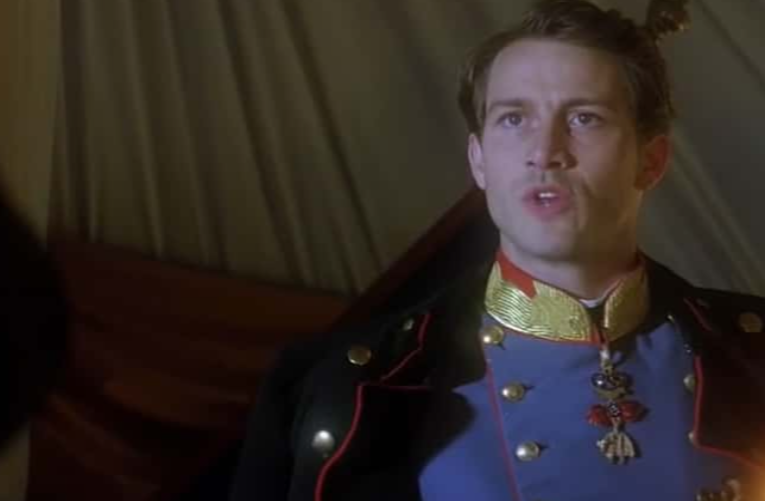 Sisi (2009), EOS Entertainment
Sisi (2009), EOS Entertainment
35. He Doted On His Wife
On October 28, 1860, Franz Joseph found his wife in a state of nervous collapse. Suffering from a strong aversion to food and an undiagnosed mental illness, Sisi demanded to leave the capital. Franz Joseph, ever the doting husband, agreed; he made arrangements for Sisi to live in the remote region of Madeira for five months. Franz Joseph found it difficult to be away from his wife, but hoped that the distance would improve her health. Spoiler alert: It did not.
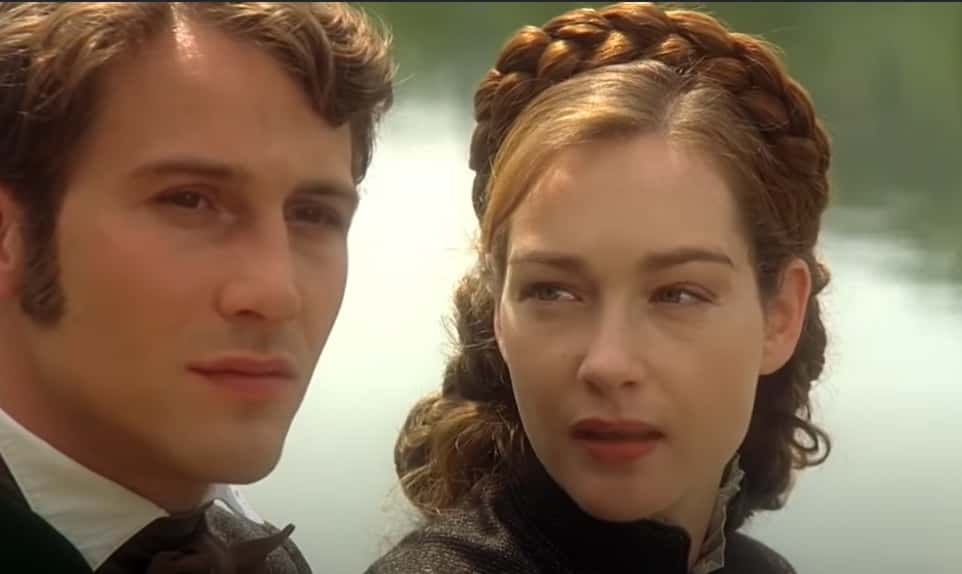 Sisi (2009), EOS Entertainment
Sisi (2009), EOS Entertainment
36. He Begged Her To Come Back
Sisi’s health varied wildly over the next few years. She was sick one day, and well the next; unable to eat a bite of food one day, and ravenous the following day. Worried, Franz Joseph visited Sisi often, even begging her to return home on several occasions. Both he and their children needed her, he argued. The Empire needed her as a stabilizing presence too. Eventually, after much pleading, she agreed to return home—and huge changes soon followed.
37. She Changed Him
Remember that whole debacle with Hungary? Unfortunately for Franz Joseph, the same issues with Hungary came back to haunt him once again. This time, however, Franz Joseph had a secret weapon: His wife, who took a shine to Hungarian culture and politics. Thanks to her, and Franz Joseph’s desire to avoid more fighting, partial rights and reforms were re-established in Hungary. Suddenly, Franz Joseph was a hero in the country that once rebelled against him.
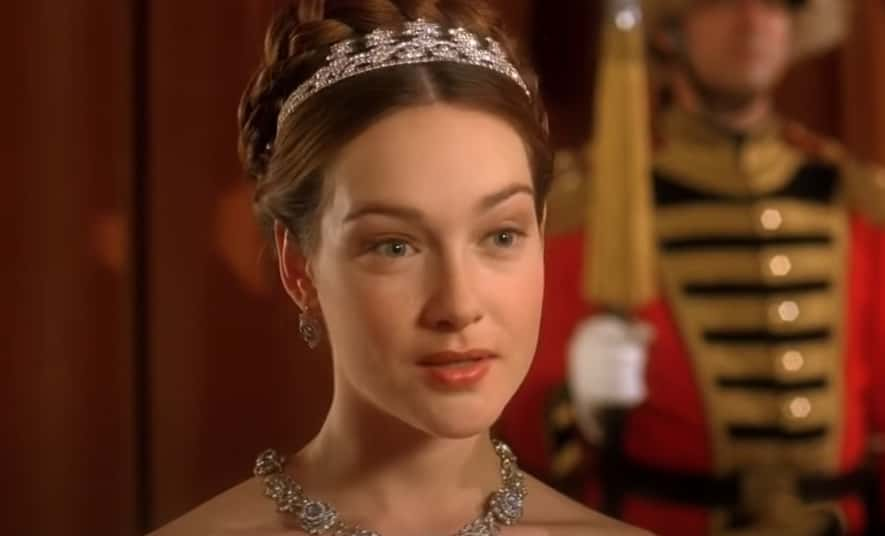 Sisi (2009), EOS Entertainment
Sisi (2009), EOS Entertainment
38. He Relaxed His Beliefs
On June 8, 1868, Hungary crowned Franz Joseph its emperor. A little under two months later, Franz Joseph officially turned the Habsburg territories into the Dual Monarchy of Austria-Hungary, putting an end to his absolutist rule and giving Hungary a measure of control over its finances, defence, and foreign affairs. This was a huge jump for Franz Joseph, a man who believed only he had the right to power. And the good news just kept coming.
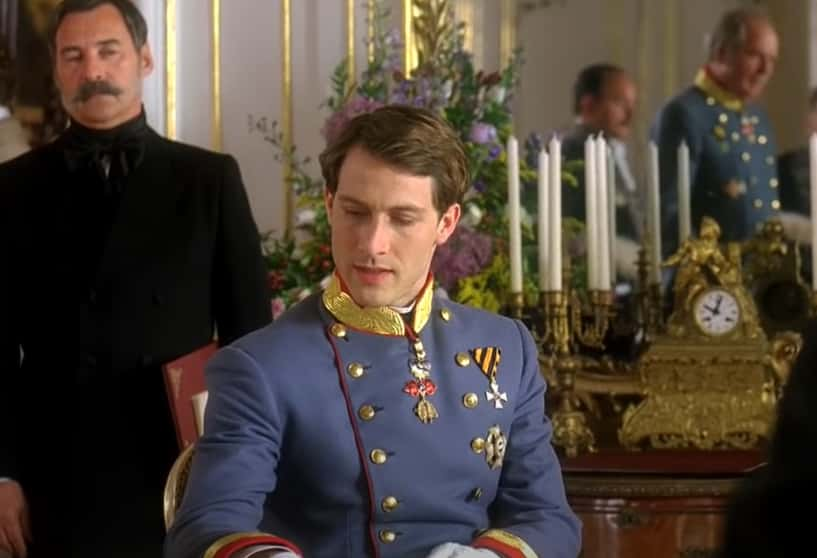 Sisi (2009), EOS Entertainment
Sisi (2009), EOS Entertainment
39. He Won Hungary’s Heart
On April 22, 1868, Franz Joseph welcomed another baby girl into the world. He named the little girl Marie Valerie, and significantly, she was born in the Hungarian city of Buda. The tides seemed to be turning for Franz Joseph; with the softening of his stance towards Hungary and his wife’s clear fondness for the country, its people began to respect him. Having navigated this political landmine, Franz Joseph breathed a sigh of relief—but soon, tragedy struck.
40. He Lost His Mother
On Monday, May 6, 1872, Franz Joseph’s mother caught what seemed to be a mild chill. Soon, her “mild chill” rapidly progressed, and she grew incredibly weak. On May 28, 1872, her illness overtook her. The passing of his mother shook Franz Joseph deeply; she may have been heavy-handed and controlling, but he considered her his greatest confidant. Her passing may also explain Franz Joseph’s next, unexpected move.
41. He Fell In Lust
On May 8, 1875, Franz Joseph was out for a walk in the park area of his summer palace when a young, attractive blonde caught his eye. This was 14-year-old, recently-married Anna Nahowski, who also found herself unable to keep her eyes off the now 45-year-old Emperor. From there, the two covertly looked for each other every morning in the park, until they had their first kiss on June 26. Very quickly, things spiralled out of control.
42. They Had An Affair
Franz Joseph’s affair with Anna was a long and passionate one. He paid for Anna’s silence with money and gifts, and had a secret entrance in his summer palace just for her. He even asked her to be “ready in bed” when he called for her (ugh). Franz Joseph’s wife knew nothing about this fling. You see, Sisi was busy with another important task: finding a suitable wife for Franz Joseph’s son.
43. His Son Disliked Him
Eventually, Franz Joseph and Sisi betrothed their son, Rudolf, to Princess Stephanie, the daughter of Leopold II of Belgium. Although Franz Joseph’s son dutifully married the young princess in 1881, it was clear he was growing distant from his father. They diverged on political matters, with Rudolf labeling Franz Joseph as “bigoted, gruff and suspicious.” This wasn’t entirely true—when it came to women, Franz Joseph could stand to be a bit more suspicious and aloof.
44. He Was Lonely
With Franz Joseph and Sisi becoming incredibly busy with their duties, the Emperor found himself increasingly lonely. His craving for companionship eventually led to his meeting with Katharina Schratt, an actress in Vienna, in 1885. Unlike his first mistress Anna, Katharina was intellectually stimulating and closer to his age. She became a close friend and confidant—which didn’t improve matters between Franz Joseph and his wife.
45. She Tolerated His Relationship
To some degree, Franz Joseph’s wife tolerated his relationship with Katharina. And to be fair to Franz Joseph, he openly rejected Katharina’s offer to become his mistress, insisting that she “treat [him] as a fatherly friend,” though we don't know for sure what went on in their bedroom. For the Emperor, life was pretty good: He now had a wife, a mistress, and an attractive female friend. Nothing could possibly go wrong… Right?
46. He Lost His Son
On January 30, 1889, imperial servants found the bodies of Franz Joseph’s son and his mistress in Mayerling, a hunting lodge. It soon became apparent that Rudolf had slain his mistress, before taking his own life. The news completely stunned and horrified Franz Joseph—despite their rocky relationship, he loved his son. The only other person more horrified than Franz Joseph was his wife.
47. His Wife Spiralled
Franz Joseph’s wife fell into a deep state of despair. She wore the mourning colors of black or pearl grey for the rest of her life, and spent more time away than ever from both Franz Joseph and the court. During one of these trips, Franz Joseph’s wife met her tragic end. On September 17, 1898, Franz Joseph received news that his wife had succumbed to wounds inflicted upon her by an Italian anarchist in Geneva. Just like that, Franz Joseph lost everything.
48. He Had Nothing Left
Franz Joseph never recovered from the loss of his wife. Sure, he still carried out his duty, but grief overshadowed his every action. To make matters worse, the loss of both his son and his wife left Franz Joseph without an heir, and at the age of 68, it was unlikely that Franz Joseph would re-marry. He needed an heir—and the one the court chose for him was not his first choice.
49. He Celebrated In Secret
Archduke Franz Ferdinand became the heir presumptive in 1896, and the aging Franz Joseph was not happy about it. They didn’t agree on matters of state, and the fact that Franz Ferdinand wanted to marry Sophie, a woman of lesser rank, didn’t exactly endear him to Franz Joseph. In fact, when Franz Ferdinand and Sophie met their end in 1914, Franz Joseph remarked to his daughter that, “For me, it is a relief from a great worry.” Ouch!
50. He Met His End
Franz Ferdinand and Sophie’s passing kicked off WWI, forcing Franz Joseph to, ironically, fight against Russia, his once-ally. However, Franz Joseph didn’t live to see the end of the conflict. On November 21, 1916, pneumonia overcame him, leaving a hole in the Habsburg dynasty that could never be filled. Despite all his flaws, the Emperor will forever be remembered as one of the most larger-than-life characters in Habsburg history.

